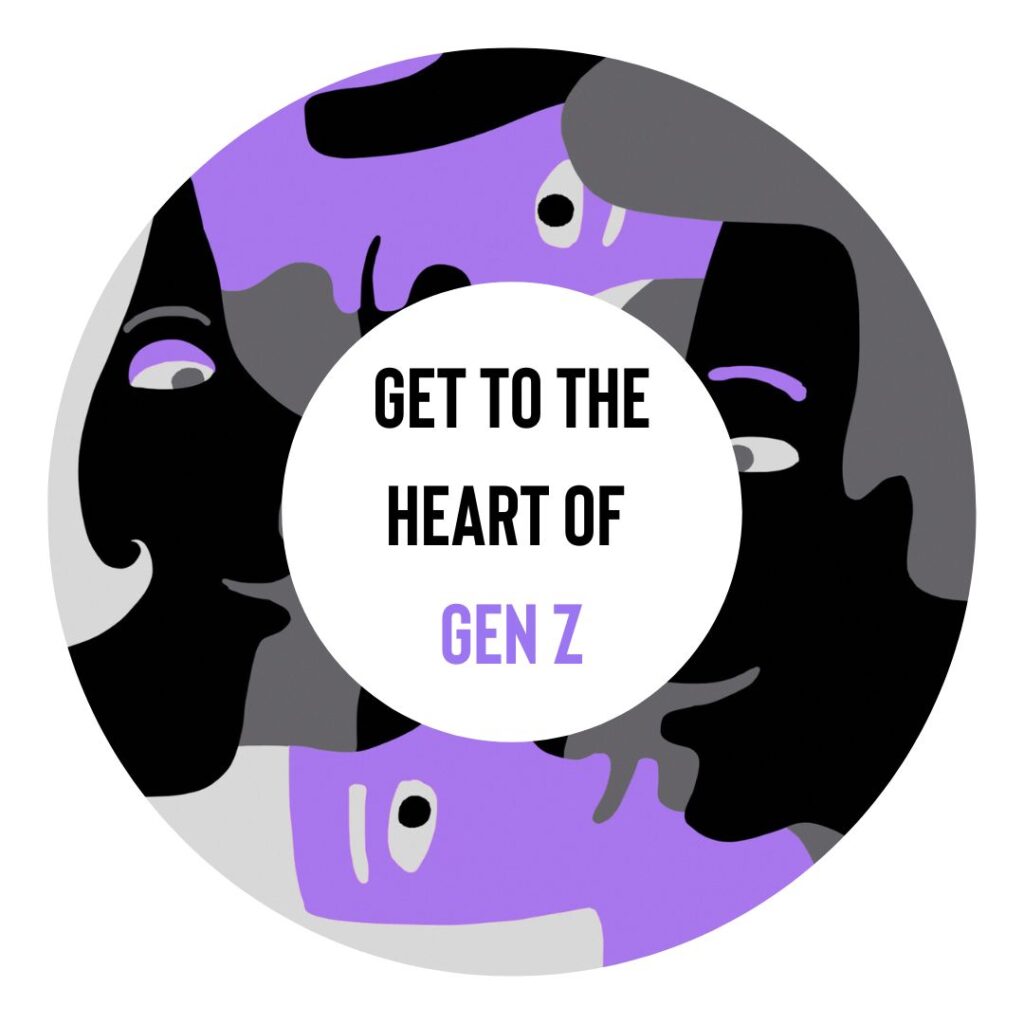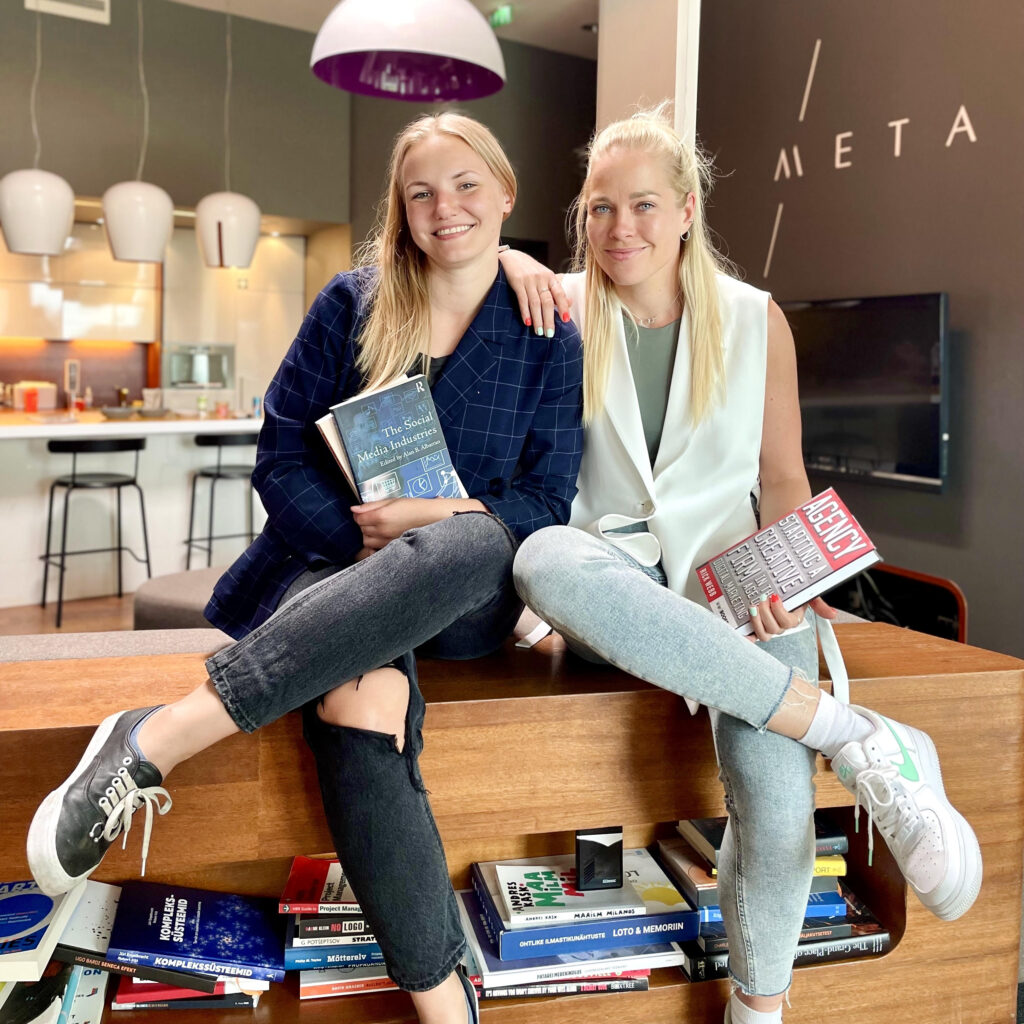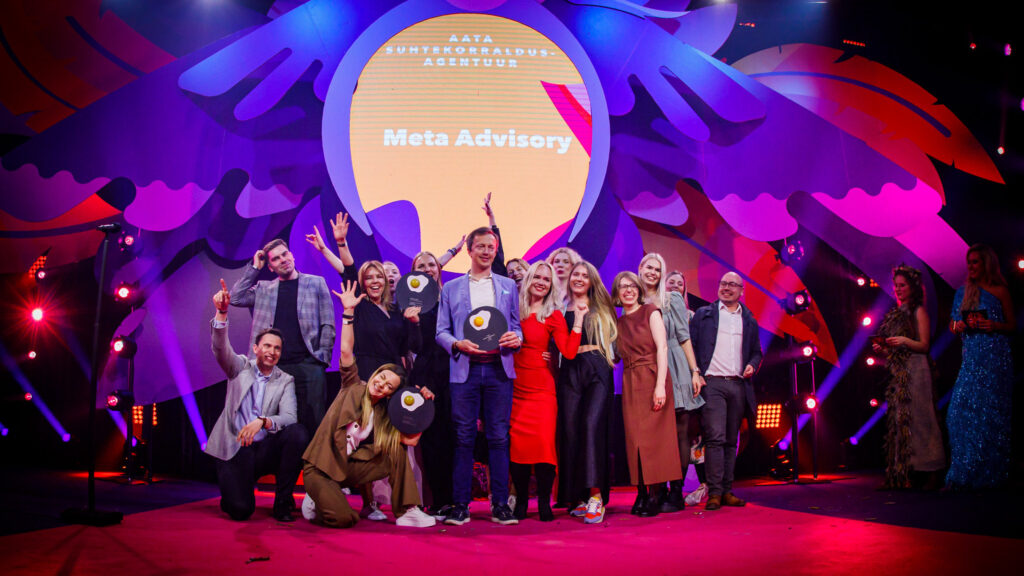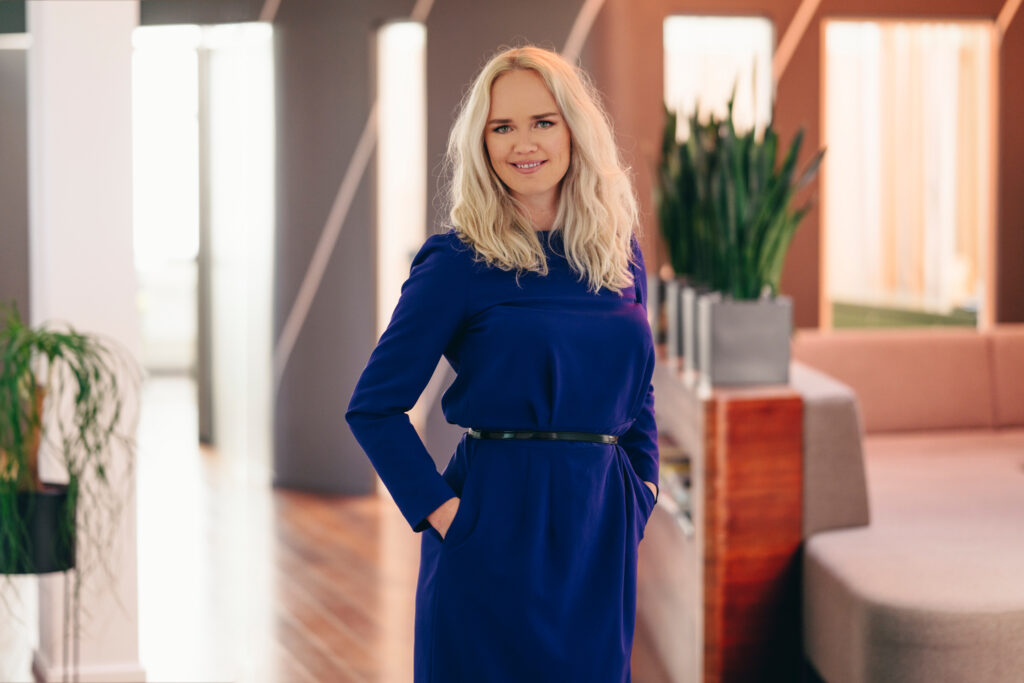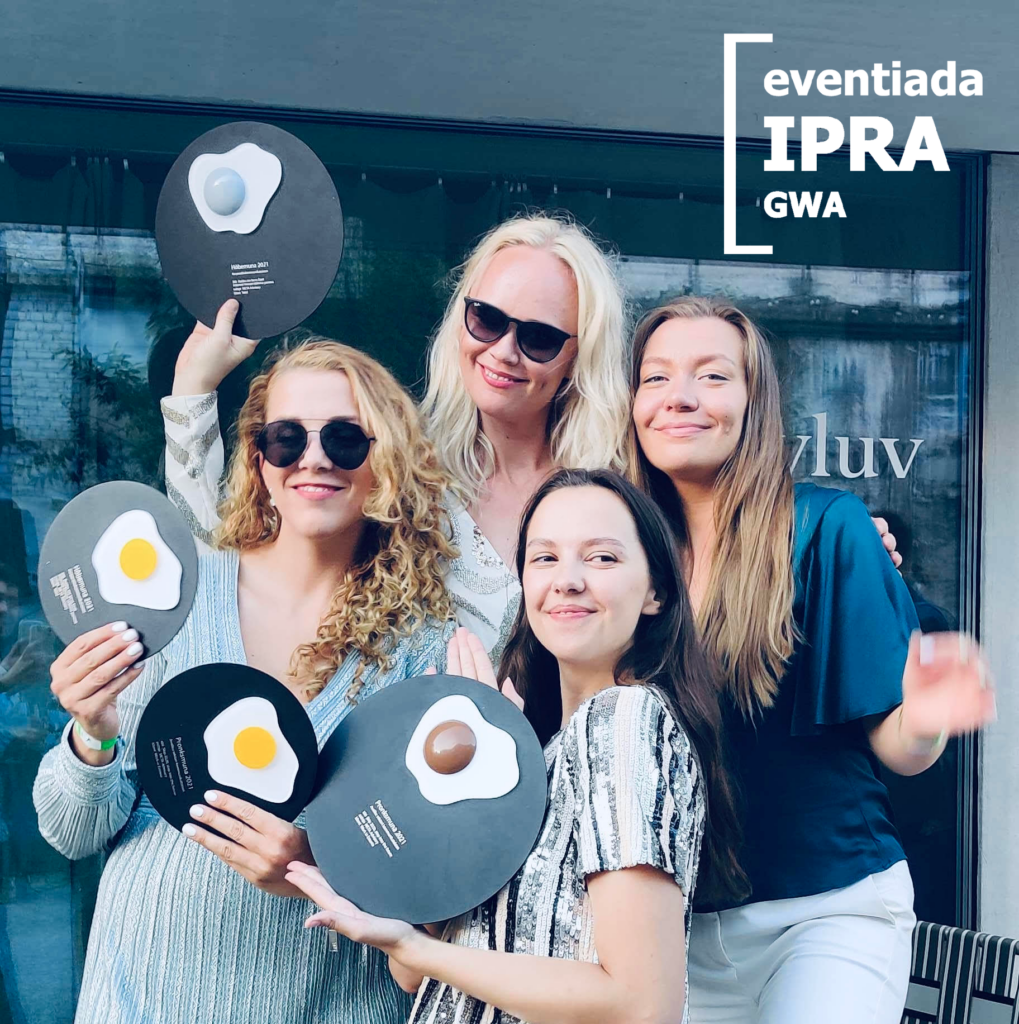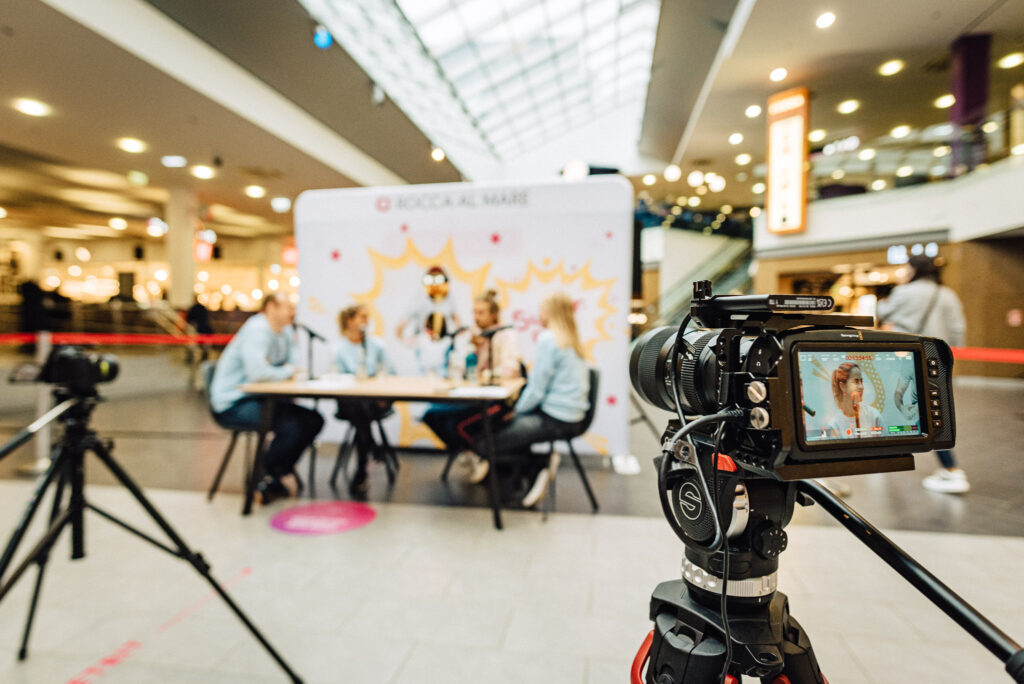How to choose the right influencer for your brand?
In 2004, Facebook made its debut and shook the advertising, PR, and marketing industries to their core. What began as a platform to connect people transformed into a popular commercial hub for businesses. Six years later, in 2010, Instagram was introduced and only amplified the game-changing impact of social media on the aforementioned fields.
It’s a well-known fact that referral marketing is one of the most effective forms of advertising. To capitalise on this, an increasing number of brands are tapping into the power of Instagram content creators for their marketing campaigns. These influencers offer a unique and personalised perspective that sets them apart from the typical TV advertising approach. Brands must exercise caution and make a thorough, well-informed decision when choosing a content creator, as their endorsement carries significant weight.
The concept of influencer marketing can be complex, leading to numerous inquiries. To clarify and demystify the subject, I’ve gathered a selection of the most commonly asked questions that I encounter in my daily interactions.
1. Is there compatibility between the content and values of the influencer’s platform and my business?
A company’s brand and image are essential in achieving its business objectives. It’s, therefore, imperative to exercise caution when selecting individuals to represent the brand. Take, for instance, an environmentally conscious company for which sustainability is a top priority. This company would not want to partner with an influencer who, despite having made a few eco-friendly statements, actively promotes fast fashion brands. The ideal influencer partners are those whose values align with the company.
example: boohoo x kourtney kardashian
A recent case in point is the American fast fashion brand Boohoo’s collaboration with Kourtney Kardashian, who was appointed brand ambassador to steer the company towards a more sustainable fashion direction. However, this move was met with widespread criticism. This was in part due to the fact that the wealthy and well-known public figure is not known for leading an environmentally conscious lifestyle, frequently using private jets and exhibiting a high level of consumption. Despite facing ongoing public pressure for its harmful environmental practices, Boohoo could have improved its image with regard to sustainability by choosing a more appropriate influencer. Instead, their selection of the wrong influencer resulted in further harm to their reputation.
Read more about the case here.
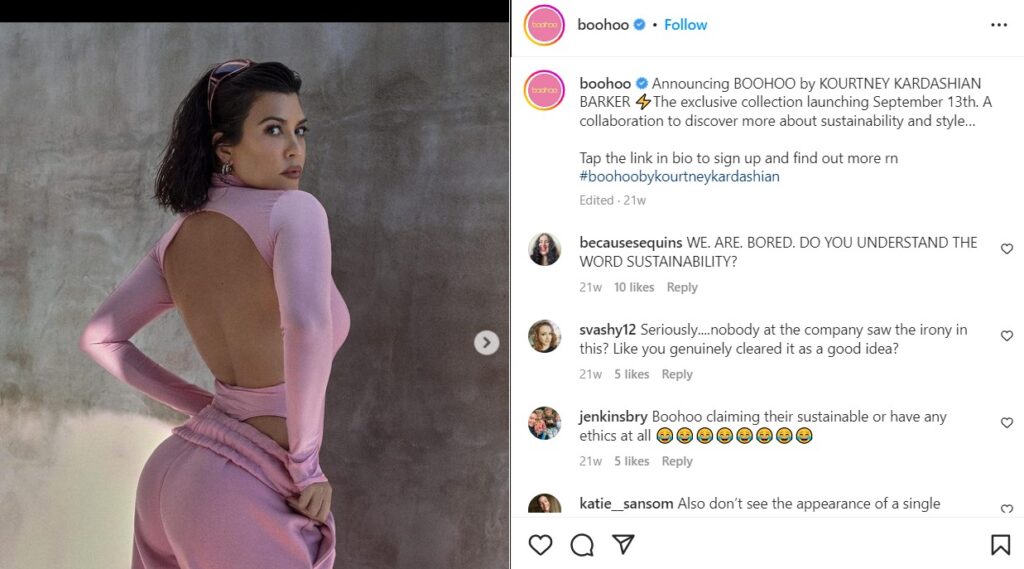
2. Why is communication between the brand and influencer important?
The importance of clear communication in influencer marketing partnerships cannot be overstated. A lack of clear expectations and guidelines can lead to misunderstandings and dissatisfaction on both sides. It is imperative that companies provide a comprehensive brief to their influencer partners, outlining the content, parameters, and conditions of the collaboration. This sets the foundation for a productive and successful partnership. Failing to effectively communicate can result in unmet expectations and dissatisfaction with the partnership.
The Key to Successful Collaboration: A Guide for Brands
Collaborating with influencers can be a great way to reach a wider audience and promote a product or brand, but it’s important to have clear communication to ensure success. Here are some guidelines for brands to follow to have a successful collaboration with an influencer:
- Precision is Key: When outlining the collaboration, be as detailed as possible about the content of the post, the level of creative freedom for the influencer, and the conditions they must follow. This helps to manage expectations and prevent misunderstandings down the line.
- Approval Process: Make it clear from the outset that the client must approve the content before it is posted to avoid factual errors and ensure the idea is coherently understood.
- Content and Channels: Agree on the specific content of the post and the social media channels where it will be shared.
- Scope of Collaboration: Clearly define the number of posts and stories the influencer will create, and have a clear understanding of their pricing structure.
- Copyright Matters: If the post uses music and is a paid collaboration, make sure to pay attention to copyright issues.
- Use the Product: When promoting a product, it’s more credible if the influencer actually uses it in the post, rather than just holding it.
- Hashtags and Usernames: Include the exact usernames and hashtags the influencer needs to include in the post.
3. Why is it so expensive to work with influencers?
Collaborating with influencers on Instagram is not unlike buying advertising space from online media outlets. Just as advertisements appear alongside website articles, influencers promote products and services on their social media channels and receive compensation for their efforts. With the time and effort influencers put into creating and publishing posts, it’s reasonable for them to charge for their services. Furthermore, working with influencers provides companies with a sense of security and a written agreement outlining their expectations.
In some cases, influencers may agree to promote products in exchange for the items themselves, but this is typically only feasible when the products are expensive. The cost of working with influencers in Estonia may vary, and companies may find that influencers in Latvia and Lithuania charge less for their services. For companies with a target market spread across the Baltic States, exploring collaborations with Latvian and Lithuanian influencers may be worth considering.
4. When to enter into long-term cooperation?
Long-term partnerships between companies and influencers can contribute to building brand loyalty. Consistent collaborations demonstrate the partnership’s effectiveness and stability, making it more beneficial for both parties than constantly changing influencer partners. For example, if a telecommunications company works with different influencers each month, the brand may lack continuity and stability. On the other hand, if a company invests in a year-long partnership with a single influencer, the influencer will become more familiar with the brand, leading to a more natural and effective partnership.
Investing in long-term collaborations with influencers can also save time and money in the long run. Companies won’t need to repeatedly explain their brand’s values and objectives, and the influencer will gain a deeper understanding of the brand over time.
example: tele2 x mihkel raud
Our client Tele2, a leading telecommunications provider, has demonstrated the power of long-term collaboration in its partnership with influencer Mihkel Raud. Raud has been a prominent figure in Tele2’s “hardware” section of their blog, providing his followers with exciting and informative reviews of the company’s products and services. This dedicated contribution to the brand has not only built anticipation among Raud’s followers but has also solidified his position as a trusted influencer and Tele2 customer. This seamless integration of brand and influencer has resulted in a more authentic and confident impact on the target audience, solidifying the success of the long-term collaboration by repeatedly explain their brand’s values and objectives, and the influencer will gain a deeper understanding of the brand over time.
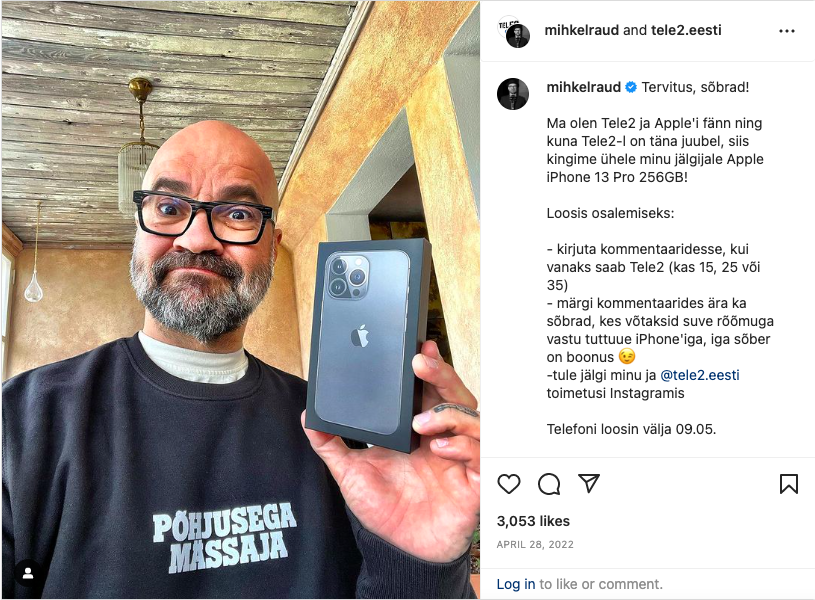
5. What are the numbers that bring success when working with influencers?
The notion that partnering with an influencer with a large following is a recipe for success is often misleading. In reality, the number of followers is not a reliable indicator of success in influencer marketing. Instead, the engagement rate, or the level of interaction between the influencer and their audience, is a key metric to consider. In Estonia, there are instances where influencers have tens of thousands of followers but exhibit a low engagement rate of 0%.
The rapidly changing algorithms of Instagram make it increasingly difficult to stay abreast of trends in the industry. Buying followers, prevalent on the platform, can contribute to an influencer’s low engagement rate. However, this should not automatically disqualify a potential collaboration, as the influencer may still resonate well with the target audience. It’s essential to take a holistic approach and consider the bigger picture. Companies can also request the influencer’s engagement rate or use influencer marketing platforms to measure their statistics.
example: maria rannaväli x buying followers
In Estonia’s influencer landscape, one example of the pitfalls of relying solely on followers as a success metric is the story of Maria Rannaväli. One of Estonia’s biggest influencers had 64,000 followers, but a malicious individual bought more followers to her account, raising the count to 400,000. The impact of this artificial increase in followers was significant, as the engagement rate plummeted when dividing likes, comments, and views by the new, inflated number of followers. This serves as a cautionary tale for brands, highlighting the importance of looking beyond simple follower counts.
Read more about the case here.
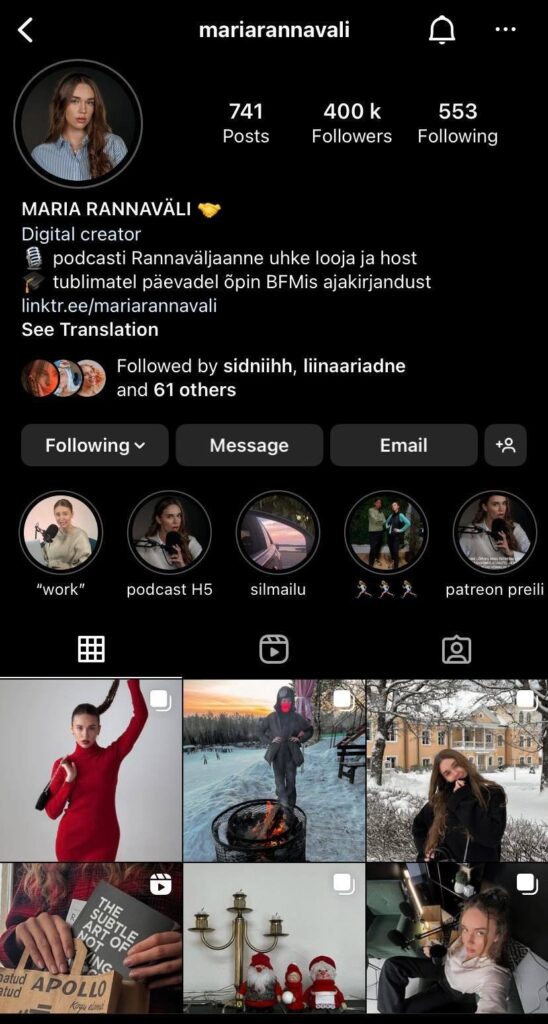
6. How to analyse the effectiveness of cooperation?
Once a collaboration with an influencer has been established, you have to evaluate its results. Measuring the impact of influencer marketing is one of the few concrete ways of determining the effectiveness of a communication strategy. E-commerce and promotional code data provide tangible metrics for success, but every brand has different goals for its influencer marketing campaigns. To fully assess the impact of a partnership, it’s recommended to gather post statistics from the influencer a few weeks after the content has been published. Analyse the engagement, clicks, and performance of links and promotional codes. To gain valuable insights and optimise future campaigns, it’s essential to compare the results over an extended period of time and determine what’s resonating with the target audience.
Five tips to get to the heart of Gen Z through effective communication
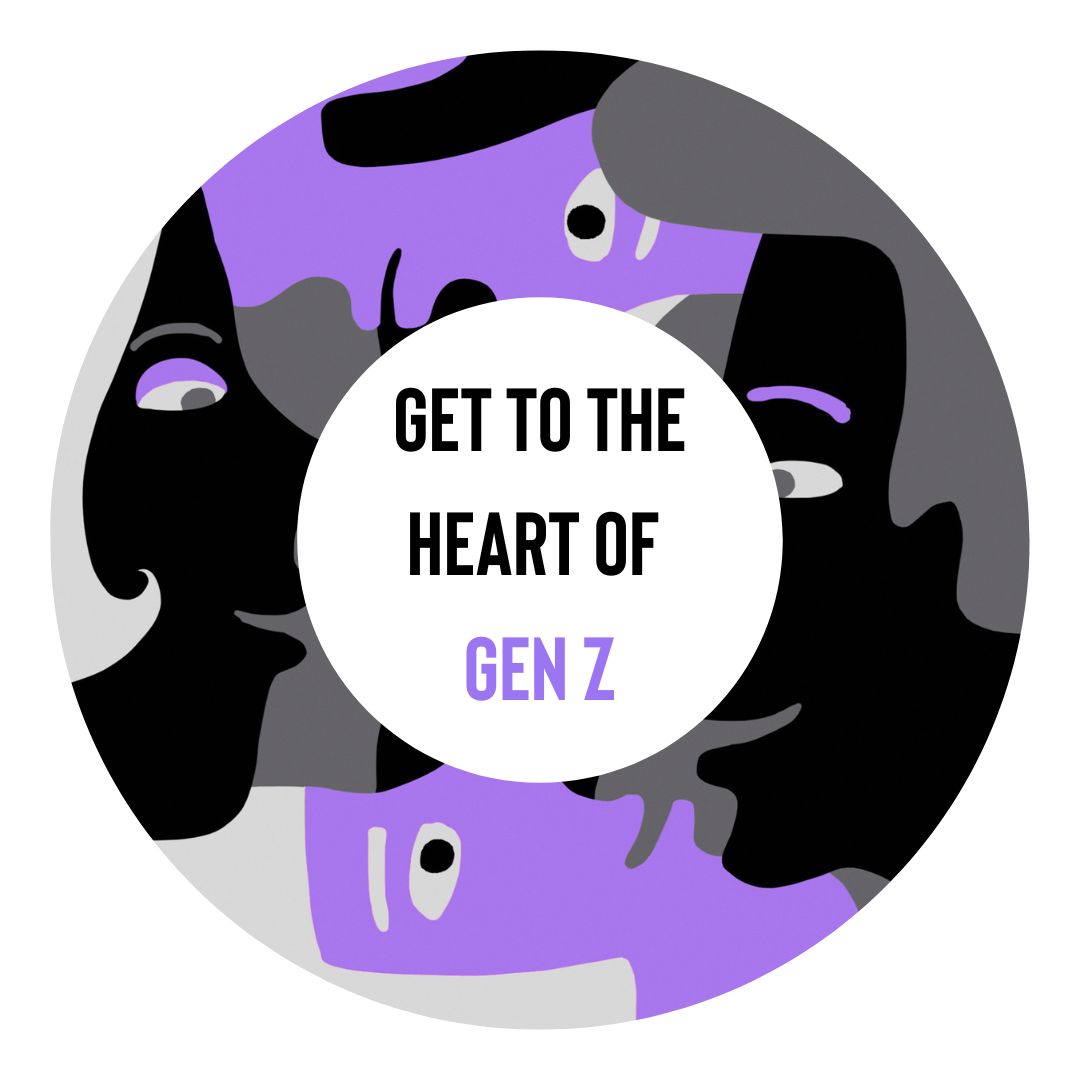
With every year, Generation Z makes up a larger share of the population with purchasing power. To win their loyalty, you need to start targeting them now.
Who is Gen Z?
Gen Z is characterised by openness, high technological awareness and a global perspective.
Gen Z is commonly defined as people born between 1997 and 2015. They are characterised by a constant orientation towards the virtual world, with an increasing emphasis on community. The community, be it, influencer followers, social media groups or even forums, is increasingly guiding their consumption decisions. As a result, Gen Z is strongly connected to ‘its clan’, based on shared values, experiences and worldview.

The interactivity of social media allows young people to ask each other for advice and constantly share their views. Gen Z is socially inclined and can quickly acquire knowledge and learn new skills.
Why is Gen Z important?
Young people are becoming an increasingly large part of the purchasing population. What’s more, Gen Z already has more purchasing power than previous generations at their age. One of the reasons for this is that Gen Zers are entering the workforce at younger age. It should be remembered that when marketing a brand, it is necessary to reach potential consumers as early as possible. The earlier we reach Gen Z, the more likely young people – both now and in the future – will want to be associated with a brand they identify with and believe in.
Companies and institutions that are forward-thinking and involve young people in developing marketing strategies will have an advantage.
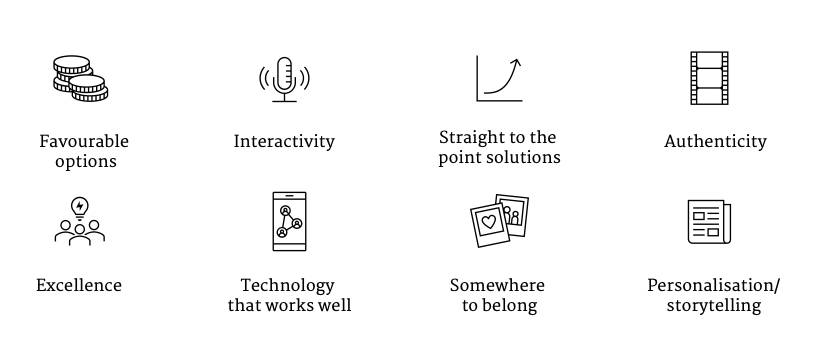
How do you communicate to Gen Z?
To reach young people, you need to be in the same information space as Gen Z, know the unwritten rules of social media, and stay on top of ever-changing trends. The most important thing is to your communication to be:
- Concrete. Gen Z’s attention spans fade quickly, so there’s little time to win it. You need to be able to deliver your message in just a few seconds or be able to generate interest for them to stay longer.
- Outstanding. Amidst the constant information noise on social media, you need to stand out and evoke emotion in Gen Z.
- Sincere. Gen Z is used to consuming mind-boggling amounts of information, so young people have a good nose for authenticity. They can see through vague talk and promises and are not afraid to call it out.
“Companies and institutions that are forward-thinking and involve young people in developing marketing strategies will now have an advantage.”
It is essential to understand that Gen Z not only consumes information but also creates it. A successful communication strategy can initiate a discussion that allows Gen Z to identify with the proposed topic, share their opinions and pull the entire virtual space along with them.
Five tips to get to the heart of Gen Z:
- Create a concrete and specific message.
- Collaborate with the right influencers – find people in a similar age group, popular within the target audience, and who are trusted or known.
- Speak up on current issues and be active in promoting your brands values.
- Pay attention to user experience, too – nothing embarrasses Gen Z more than a cluttered website and bad internet.
- Use interactive and innovative solutions. Gen Z’s attention span is quickly distracted, so it’s essential to engage them from the first moment and make them feel like they’re a part of the promotion.
Meta team
Nele Leit-Teetlaus Intern
Georg-Marten Meumers Intern
Meta team
Kätriin Avarlaid Intern
Three Questions x META Digital Marketing Experts
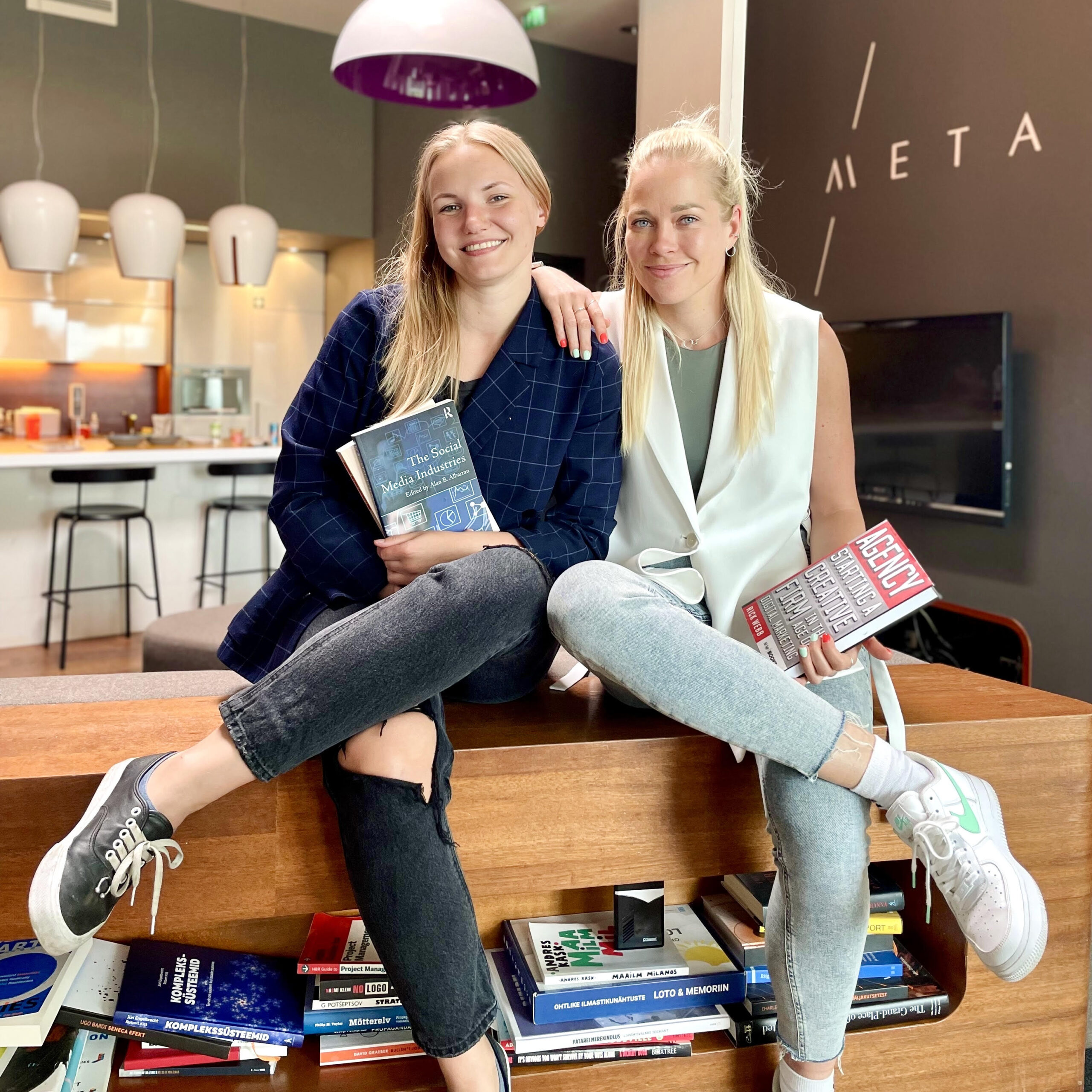
Digital communication should be seen as an organic part of well-thought-out modern PR, which must contribute to achieving corporate objectives. However, in practice, we often see a failure in noticing the opportunities that digital marketing can offer and that the basics of social media and digital marketing change so quickly that it is challenging to keep up with the latest innovations, tips, and recommendations.
That’s why we asked META’s digital marketing experts three important questions: Marketing Communications team Senior Consultant Karin Maandi and Consultant Helin Naska will help you navigate the digital and social media marketing landscape and decipher the benefits of the digital world, the most common mistakes, and the way forward.
1. What three benefits of digital marketing are often overlooked?
Karin: One of the key benefits is the ability to engage the customer better and drive their user experience. While other channels tend to be more one-way in communicating a company’s message or point of view, digital channels allow for a more two-way interaction, which helps to keep the consumer closer to the company. This way, it is possible to get immediate feedback and reactions and invite people to have their say on the product/service. But not only in terms of service and communication: clever marketers can use customer communication in marketing. Although customer testimonials and user-generated content are probably not alien concepts for any marketer, many companies today do not know how to exploit them in their marketing. In fact, this is free-generated content that marketers need to understand how to use in the proper channels. Yes, the GDPR does impose some restrictions, but this is nothing impossible.
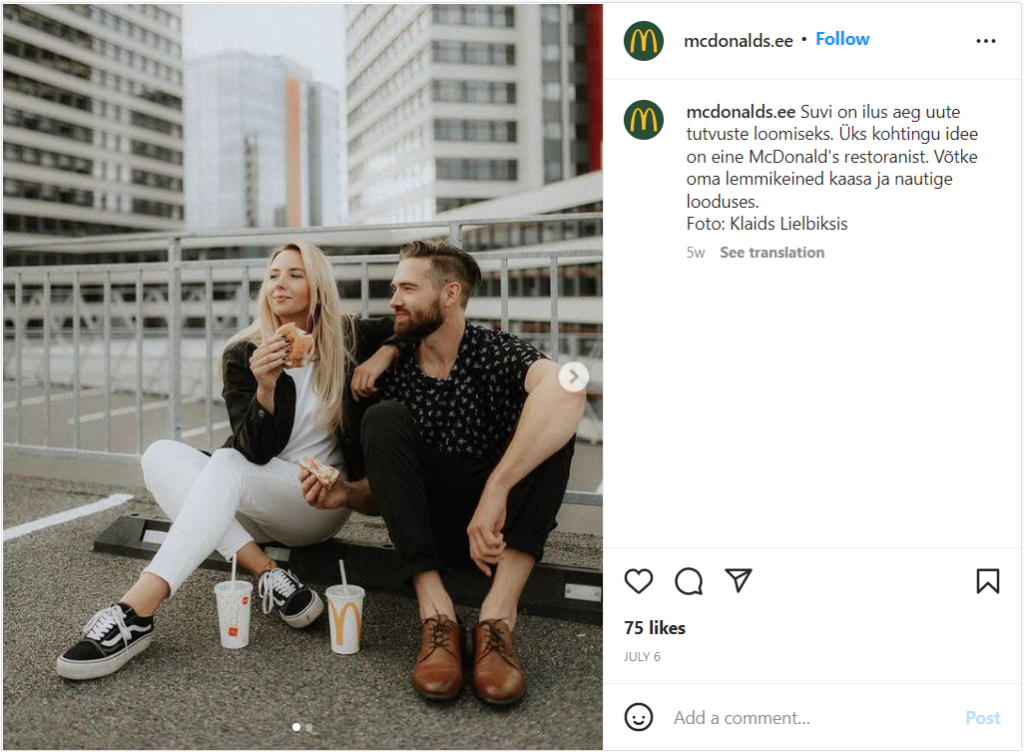
Secondly, clever techniques in digital channels can give a quick kick-start to activities that might otherwise be scheduled in traditional channels. A ‘viral’ campaign doesn’t necessarily have to start on a digital medium, but the use of digital will speed up the spread. Good examples include a talented copy or outdoor posters created in a foreign country or physically located in another city, which spread far and wide within hours via social media channels. Often, people will share prominent ads organically, but it’s worth remembering that this process can also be consciously managed.
Helin: The plethora of different channels. From time to time, it can feel like new platforms are being created daily. In outdoor media, you can also use something “outside the box” as an advertising space, but in urban spaces, it is much more challenging to get these spaces than online. In addition, visibility is always higher online.
The diversity of channels is also associated with internationalisation. While different networks are in use in other parts of the world, certainly, there are platforms that remain the ones that connect us. It is possible to manage campaigns in all countries from one country in digital media.
“While different networks are in use in other parts of the world, certainly, there are platforms that remain the ones that connect us. It is possible to manage campaigns in all countries from one country in digital media.”
Karin: Digital media is where small businesses can get global attention. Even without a specific campaign, it’s much easier to gain visibility there than through traditional media. The key to solid visibility is a strong website and digital media presence. It is therefore an excellent channel for start-ups, which can achieve significant visibility on zero budget (or on a tiny budget).

But most importantly, knowing why it pays to be visible on social media or digital channels is essential knowledge, but it is even more critical to ensure that what you do there overlaps and is seamlessly aligned with your broader brand communication strategies.
Strategic communications that integrate digital with media communication—media communication, social media, advertising and more—all go hand in hand to support business growth. That’s why it’s good to manage all brand communications from an agency – with a deep understanding of media and messaging; we understand how different messages play out across various channels. That way, you can be sure that the entire brand messaging is coherently managed.
2. Three mistakes you’ve noticed in Estonia’s digital marketing or social media world?
Karin: Firstly, the underuse of keywords. I’ve noticed that many people start SEO by picking a few keywords, working with them, and feeling like everything they need is done. Keywords should be constantly monitored and even changed – it’s not enough to put keywords in place and then revisit them in three years. It’s worth looking at competitor keywords, doing background work, and keeping them updated. 93% of the online experience starts with the search engine.
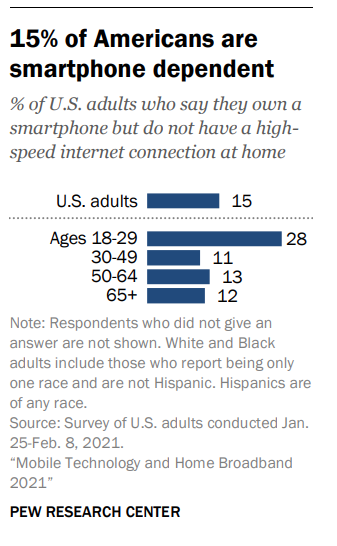
Secondly, I would suggest thinking more about what happens to websites after the marketing activity. One of the mistakes is not thinking about how to ‘convert’ visitors into customers. Here, it is worth asking yourself some questions: what keywords are visitors coming from? What will they do next on the page? In the case of an e-shop, the keyword is the sales pitch: will the visitor get something for free, or will they be greeted with a special greeting, such as a video?
Thirdly (though less so): the mobile user tends to be forgotten. The number of people using mobile devices to go online is constantly growing. It is worth considering colours, volumes, and the environment. So, in the context of a digital campaign, it is essential not to forget to increase the mobile advertising budget but to pay more and more attention to it consciously.
“So, within a digital campaign, you should certainly not forget to increase the mobile advertising budget; rather, it should be consciously given more and more attention.”
Helin: One observation, which is rather peculiar to Estonian marketers: often, there is a lack of courage to test new platforms.
There are a lot of networks and environments that are entirely undiscovered in the Estonian context. One of them is Reddit, which is used by young people in Estonia but is not yet thought about in the context of marketing and communication. However, new channels are particularly favourable for first-timers, especially in the start-up phase—no competitors and a higher chance to stand out.
Of course, one should not do something for the need of doing it, but if you notice that a friend or a mother, for example, is active in a new channel, it’s a sign that it’s the right channel to reach them. It’s worth a try. A user may already be drowning in ads on widely used channels such as Facebook!
“There is often a lack of courage in Estonia to test new platforms. There are a lot of networks and environments that are still completely unexplored in the Estonian context.”
3. Where will digital marketing be in five years?
Karin: Augmented reality combinations will probably be more available and used more avidly in marketing campaigns. This could mean more interactive advertising and new experiences for the customer—for example, the possibility of 3D viewing on the phone. Voice-activated driving is undoubtedly a keyword. Maybe even dare we say that 50% of the searches in the world will be voice-driven.
In addition, I believe that content will change significantly. People have less time to concentrate: we need to think about how to get the messages across concisely and what kind of content requires the least time and energy from people. I believe this principle will become even more rigid on a channel-by-channel basis, and the length limits for videos will also become shorter.
Helin: I agree that in digital and social media, we need to be even stronger in the future in the channels people use. The more convenient life is for the consumer, the better. Everything we don’t have online yet will move to the Metaverse.
Recommendations: where do you get inspiration and keep up to date with the constant changes?
Karin: What’s great about META is that we have experts in their field, the top of the marketing and communication world—working with them guarantees that you will learn every day. Secondly, we have industry-leading clients and client-facing managers, who need to keep up to date with the latest developments daily to provide excellent advice, but who also offer a diverse range of knowledge themselves. On digital marketing, I dare to recommend: HubSpot’s blog. For good visual reviews, check out Social Media Today.
Helin: I try to be open-eyed—to see new ideas and channels in everyday life. When I see a friend spending hour a day on Reddit, it’s clear that there are more like them.
For everyday social media use, I recommend LinkedIn: you can find a lot of useful material for professional use and exciting case studies and thoughts from experts there.
META WAS AWARDED ‘PR AGENCY OF THE YEAR 2022’ TITLE
META Advisory was awarded the title of ‘PR Agency of the Year 2022’ at the oldest and most important marketing and advertising competition in Estonia, receiving two gold, two silver and two bronze awards for outstanding campaigns.
At the Kuldmuna 2022 creative competition party held at Põhjala factory on 13 May, awards were given to the most talented Estonian marketing, communication and advertising agencies and clients and their collaborative creative works. META, which won two gold, two silver and two bronze eggs, was awarded the title ‘PR Agency of the Year 2022’.
“While we strive to do gold standard work every day, there are some projects and campaigns that resonate more than others or have been particularly effective in helping clients achieve their strategic goals,” commented META partner Andreas Kaju. “This is the second time in the last four years that we have been titled ‘Agency of the Year’ and we can be sure that it will not be the last.”
META thanks its clients for the opportunity and trust to create new solutions where there is no previous case study. “We also send our congratulations and thanks to our good partners, because only with you it is possible to create campaigns that really work,” said Kaju.
“While we strive to do gold standard work every day, there are some projects and campaigns that resonate more than others or have been particularly effective in helping clients achieve their strategic goals.”
The jury selected the best entries in each category from a total of 822 entries. The PR jury included Ann Hiiemaa, META’s New Business Development Manager. In addition to her, there were six other members of the PR jury, including top people in their field from agencies, clients, both public and private sectors.
The organiser of the Golden Egg competition, The Association of Marketing Professionals (TULI), is an association of all marketing professionals whose mission is to raise awareness of the various aspects of marketing among local businesses and Estonian society as a whole. Kuldmuna, now in its 24th year, is therefore the oldest and most important advertising competition in Estonia.
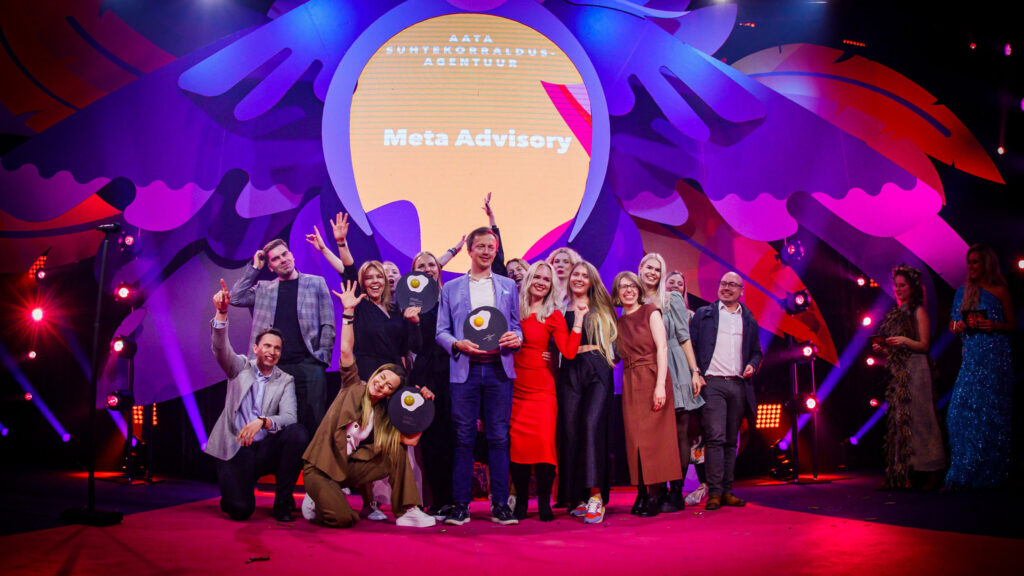
AWARDS
🥇 GOLDEN EGG
- Public Sector Communication
Digitally Wild press trip: how €45 000 brought €500 000 worth of media coverings
Client: Enterprise Estonia
Team: Mirjam Mäesalu, Maarja Karmin, Anni Türkson
. . . . . . . . .
- Influencer Marketing
Joel Ostrat’s Maestro burger in McDonald’s restaurants
Client: Premier Restaurants OÜ/McDonald’s Eesti
Team: Helin Naska
🥈 SILVER EGG
- Corporate Communication
How Tele2 cancelled its Christmas campaign
Team: Ann Hiiemaa, Lily Mägi, Laura Põldma
. . . . . . . . .
- Influencer Marketing
Dexcom Warriors
Client: Dexcom, Inc.
Team: Cairit Eit, Andreas Kaju, Rainer Laurits
🥉 BRONZE EGG
- Integrated Communication Campaign
Ivo Nikkolo rebranding communication
Client: Baltika AS
Team: Helin Naska
. . . . . . . . .
- Event Communication
Exhibition “Hirmus”
Client: Balti Jaama Turg/Astri Grupp
Team: Riin Härma, Kert Kask
Gallery
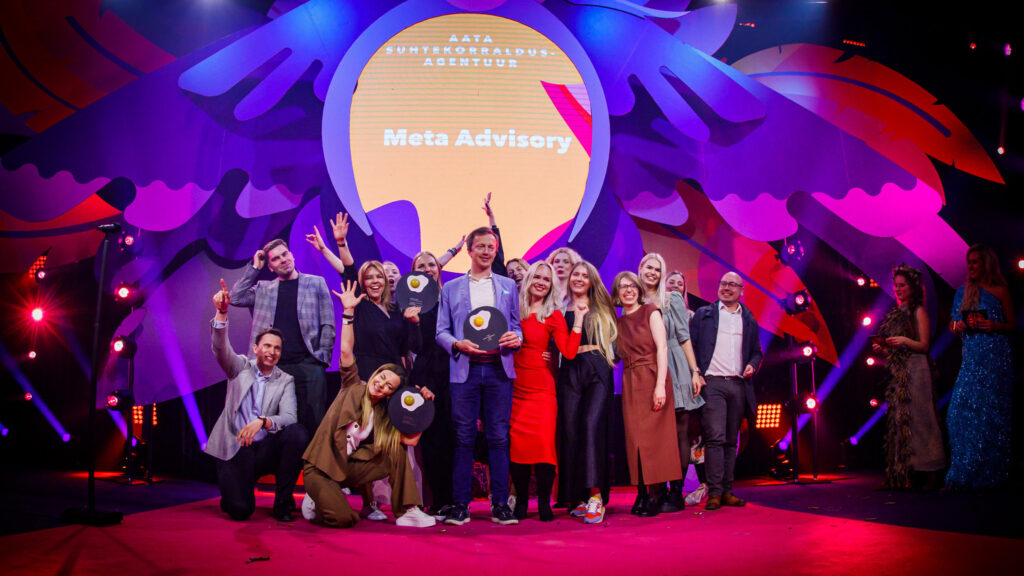
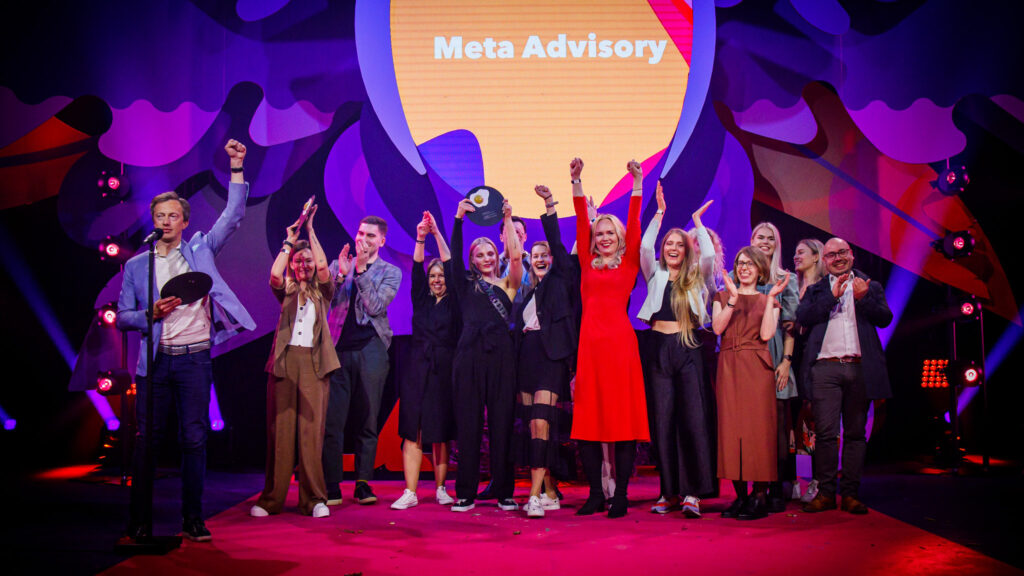
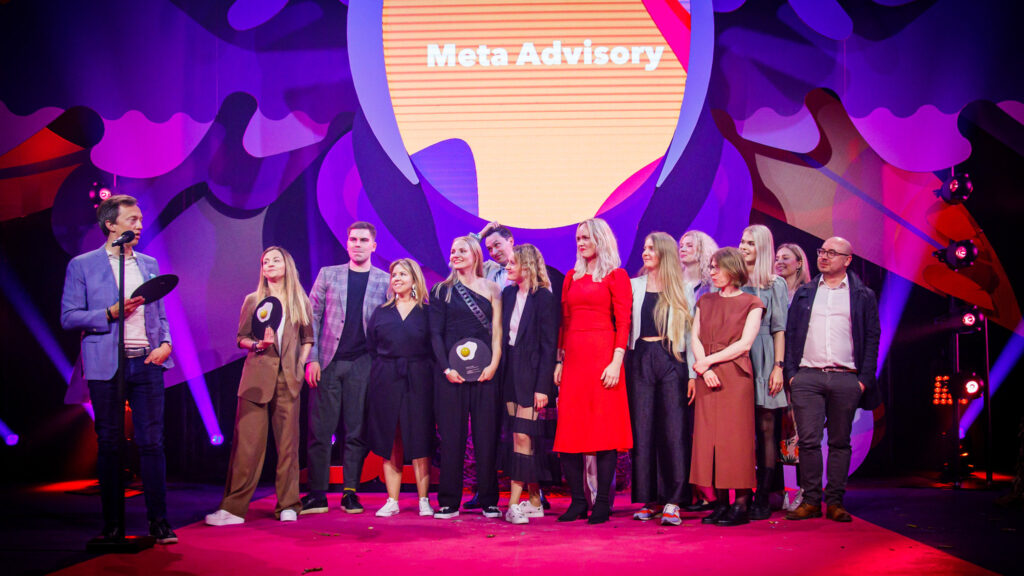
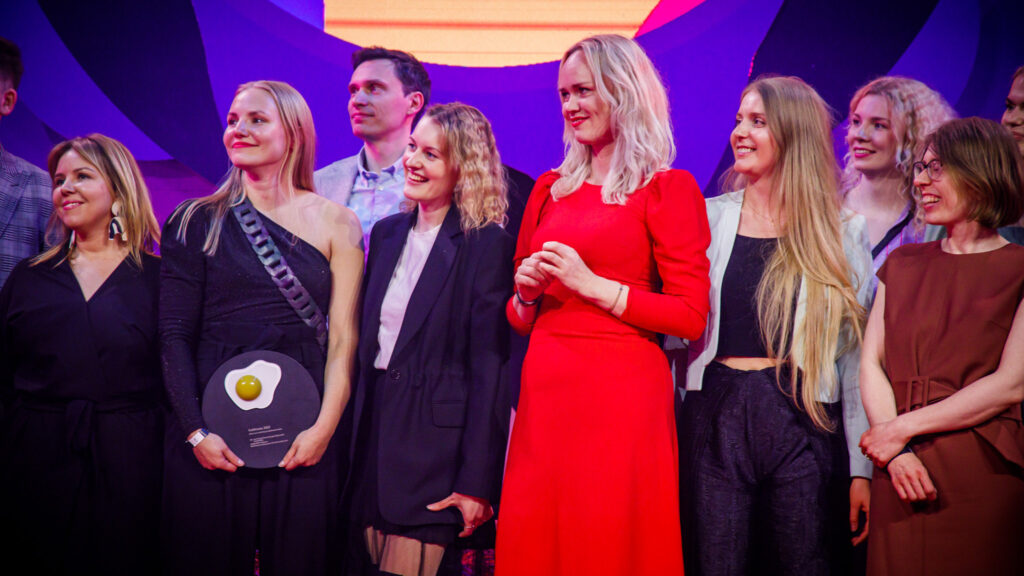
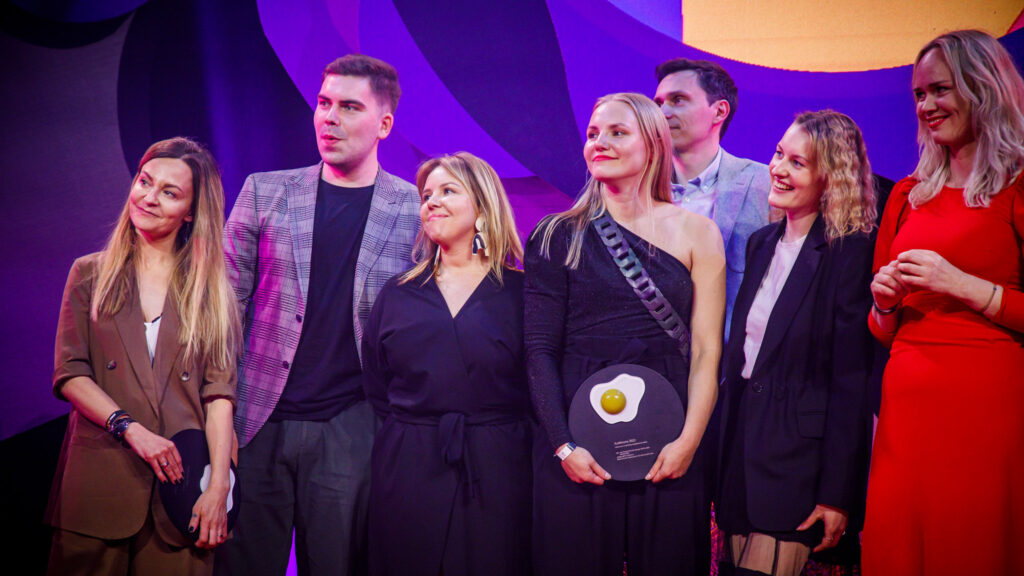

Internship at a government relations and PR agency through the eyes of #METAIQ interns
Thinking about doing a traineeship but not sure where, what and why? Would you like to know what an internship in government relations and PR agency is like? Let us help you clear your mind—previous participants of the METAIQ internship programme looked at their summer internship experience in the META team.
An internship is a unique opportunity to investigate a field of interest and put your theoretical knowledge to the test in practice. In 2022, for the third summer, META will organise the #METAIQ internship programme, where future PR talents, government relations experts, or digital and multimedia professionals will have the chance to roll up their sleeves and take a step towards their dreams.
Clearly, the journey from school to the first professional traineeship is not always easy. We know from our own experience that there are many questions that can arise when it comes to choosing a traineeship, such as: what to consider when choosing a traineeship? How to get the most out of the placement? Who would be suitable for an agency placement?
Our own #METAIQ trainees can provide the best answers and the most in-depth insight into these questions. We’ve met with many talented young people throughout the years, however, this time we spoke to four of them and asked them to look back on their experience.
Applications for the 2022 #METAIQ internship programme closed on 17 April!
Karolina Kadak | marketing communications intern 2020
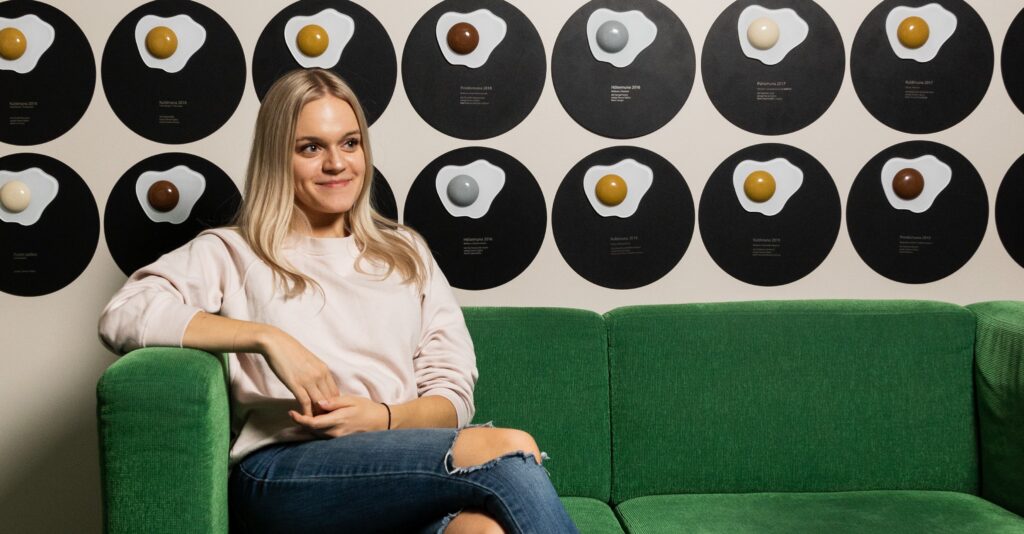
“An internship at an agency is a great foundation for an exciting career. It’s not easy to find such a variety of projects, opportunities to broaden your horizons, and a developing working pace.”
Read about Karolina’s internship experience
What is your professional background?
I am a student of Journalism and Communication at the University of Tartu. I have finished my Master’s degree by now, but I did my traineeship at META after my second year of undergraduate studies. Before that, my primary professional exposure to journalism was as a summer reporter position at Tartu Postimees a year earlier. I continued to write stories for them a co-author. Prior to the internship, I already had some association with communications as a Tartu Student Days’ media manager.
What makes the internship at the agency unique for you?
An internship at an agency is an excellent foundation for an exciting career. It’s not easy to find such a variety of projects, opportunities to broaden your horizons, and a developing working pace. What I liked most about the internship was the exposure to a diverse range of clients, projects, and tasks – the experience, knowledge, and courage I gained afterwards were much more remarkable. I felt as if I had gained the knowledge of several traineeships in a month.
What exactly did you do during your traineeship? Can you name a project or task that you were involved in at META that you enjoyed?
During my traineeship, I contributed to the development of communication plans, wrote press releases and other media texts, organized media lists, and monitored and summarised media coverage of clients. In addition, I was able to accompany my supervisor to client meetings, which gave me a fascinating insight into how agency-client cooperation works and how a project goes from brief to a fierce campaign. I can confidently say that I enjoyed all the tasks entrusted to me during my internship at META. The sparkle that came out of my training gave me the courage and the confidence to pursue my career in the communications field, working in an agency – today, I am a project manager in the PR team at creative agency Taevas Ogilvy.
What would you recommend to a student (in your field) who is still choosing a placement – what are the criteria for choosing a placement? What to consider when choosing a placement?
Try to get as broad a picture as possible of the opportunities in your field through internships. For example, if you are studying journalism and communication, I would recommend trying out both sides of the profession, regardless of where you initially see yourself in the future. The experience you gain in editorial work will definitely be helpful when you work in communication and vice versa.
I would recommend trying a traineeship in both the private and public sectors in communications. This way, you will increase your knowledge and experience and learn more about yourself through each placement. I can tell you from my own experience that, by adopting this strategy, even a newcomer to the profession will have a pretty good overview of their field by the time they start their first job, which will be hugely valuable in their future work.
Share three tips on how to get the most out of your traineeship?
1. Do a bit of preparatory work before starting your traineeship – find out more about the company/institution you’re going to. Find out what they’ve done that stood out and what their most exciting projects have been, and if possible, look at case studies and media coverage. Doing your homework beforehand will make it easier to settle in and undoubtedly help build mutual trust.
2. Think about your goals before the placement – in what areas and tasks do you want to be challenged? What contacts do you want to make? How could the placement develop your knowledge and skills? Setting goals helps you get the most out of your placement and helps you give your best, which is one of the biggest learning accelerators.
3. Appreciate your supervisor and the time they dedicate to you. Take the time to work through their guidance and feedback thoroughly – this will help you develop immensely and, in doing so, will build the confidence that will lead to exciting opportunities in the apprenticeship and help build a solid foundation for your career. Thank you, Riin!
Eero SIld |Government Relations intern 2021
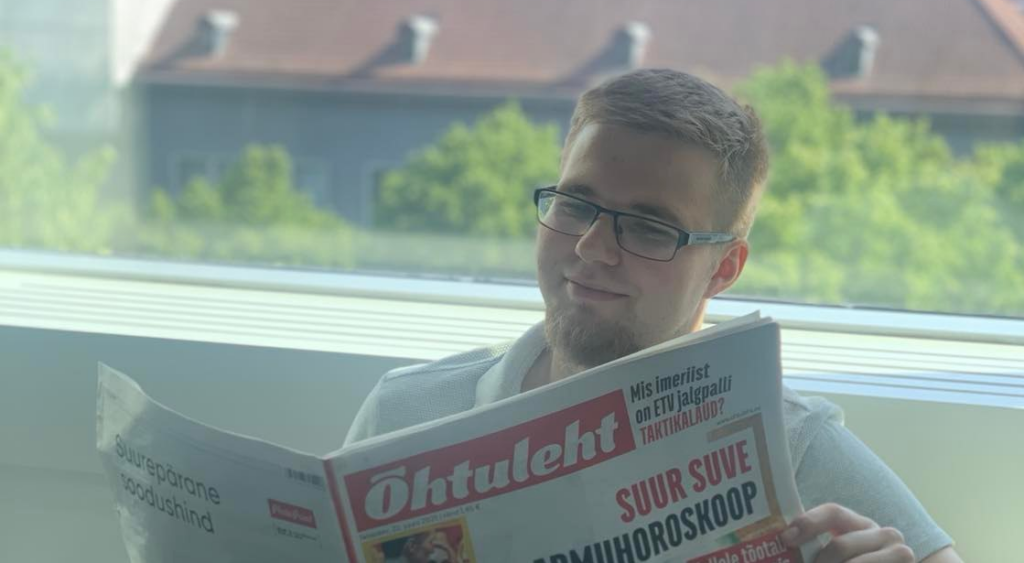
“Personally, I try to try something completely new every year – something related to my field of study, of course – so that I have a better understanding of what I want to do after my studies and what I’m really interested in.”
Read about Eero’s internship experience
What is your professional background?
Political Philosophy and International Relations, I have previously interned at the Ministry of Foreign Affairs.
Why did you choose META as your traineeship?
Purely out of personal interest: I had no idea what a PR agency did before working at META, and META was recommended to me by friends who had interned there before.
What makes an internship at an agency exciting or unique for you?
Being able to solve problems and perform tasks that are also done by paid staff – then a) I feel like a full member of the team and b) the internship also feels more rewarding because I get to see what the job is really like.
What exactly did you do during your traineeship? Name a project or assignment you worked on at META that you enjoyed?
I wrote reports and market research on new trends in the PR world, did translation work, and researched background information for a client. In addition, I produced monthly client reports. I enjoyed most gathering information and writing reports, as it was never routine. I felt that my work was valuable (bravo to META partner Andreas, who was very good at explaining the purpose and necessity of the tasks to the trainee).
What are the three biggest lessons you took away from your internship in government relations and PR?
The importance of the working environment – I felt valued by the employer at work, which also motivated me more. From the Coca-Cola in the fridge to the team events – it always felt like I was part of something bigger.
For PR work, it’s about character, not the professional background. I think that everyone can find a place in this field due to so many different types of clients and projects. But I suspect that psychologists and sociologists may have a particular advantage because I feel that PR is more about knowing people than products. Contacts are the most important thing when you’re doing relational work. It is probably impossible to set up a PR agency and find clients without a reputation and contacts.
What skills did the internship develop in you the most?
Prioritizing tasks and time planning. Also, the ability to say ‘no’.
What did your internship at META teach you about your own position?
It taught me that I don’t like routine work.
What would you recommend to a student (in your field of specialisation) who is still choosing an internship – what are the criteria for choosing an internship?
It’s worth thinking about what the placement will give you – whether and how much you will develop during the internship. For example, I try to do something completely different every year – something related to my field of study, of course – to have a better idea of what I want to do after my studies and what really interests me.
In three words, describe the atmosphere at META.
Positive, friendly, and mega-cool. I am grateful to the whole team for this experience.
Share three tips on how to get the most out of your internship?
Socialize as much as possible with colleagues (but not at the expense of work!).
When you run out of tasks – and this can happen – go and ask for more. At least in my experience at META, you don’t have to limit yourself to your supervisor – you can ask anyone. It was fascinating to see the PR side of things besides the government relations side. I think it fulfilled the whole internship experience.
And another important thing: if you don’t like something, say so. Really.
Keneli Pohlak | Marketing Communications intern 2021
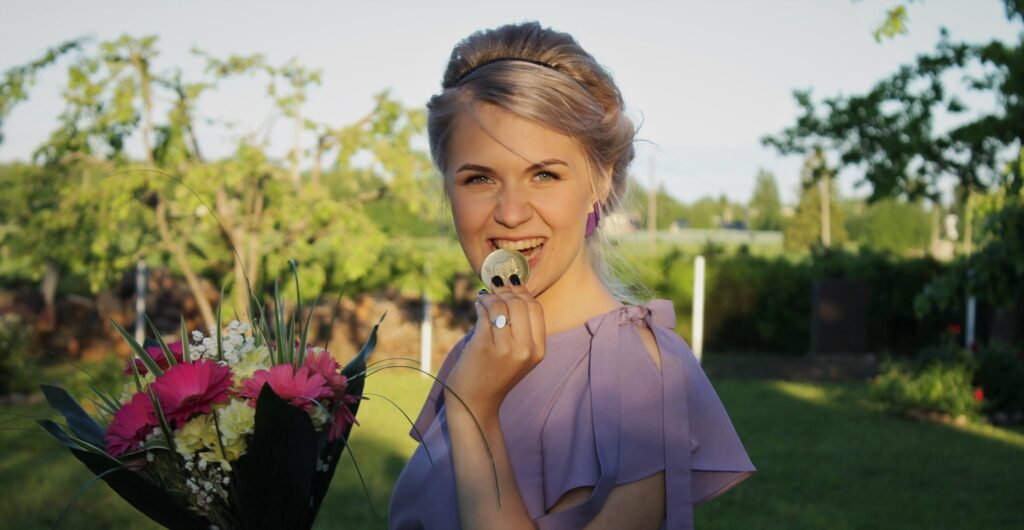
“All the more reason for me to be delighted to see the client’s final advertisements and visuals after the internship – both in urban spaces and in digital media. That’s exactly when I had the great feeling that the ideas that had been in my head and were being finalised together with my colleagues were being realised!”
Read about Keneli’s internship experience
What is your professional background?
When I started my internship at META, I was just finishing my first year at the Faculty of Economics at Tallinn University of Technology. I majored in Business Administration and, more recently, specialized in Marketing at the beginning of 2022. Therefore, from an academic point of view, I did not have much experience in marketing communication. However, just before my summer internship, I had applied for the marketing team of the solar car project Solaride (now the educational program Solaride Academy) in the spring. As a result, I was selected to the marketing team, where I made a giant leap in my professional background with the best mentors in my field.
However, I believe that having graduated from Väike-Maarja Gymnasium with a gold medal, while at the same time having been very active in student council activities as president and in several competitions and contests, I gained the experience to successfully take my first steps in the marketing world. Time planning, critical thinking, prioritizing activities, and finding solutions are essential keywords that will also come in handy when working in marketing.
After the internship, I was hired to work as a social media specialist to SPARK Studios. I’m sure that my internship was a great incentive to start working there because I fell in love with the thrill and pain of agency work!
Why did you choose META for your internship?
I didn’t have much of an agency background when I applied. I had heard about META’s work culture and projects from my cousin Kristi, who worked as a senior consultant about three years ago. I came across META’s internship opportunity advertisement on Facebook several times. I thought it was a sign to apply – so I checked the website and social media platforms for more information about the agency. I made a decision and finally used it. As a first-year student, I didn’t have high expectations, but the whole process went well!
Why did I choose an agency instead of a specific company’s marketing department? Definitely because of the broad focus. I wanted to get an overall experience, and that’s what the META internship provided. During the day, for example, I had to deal with a company in the logistics sector and the fashion sector, write an article in the food sector, and later work on a campaign for a group of shopping centres. Broadening my worldview and dealing with different companies was one of the best experiences during the traineeship.
What exactly did you do during the internship? Name some of the projects you worked on at META that you enjoyed.
During the internship, I was exposed to a wide variety of issues. For example, drafting media pitches for companies, coming up with campaign ideas, making presentations for clients, and writing content marketing articles and press releases. I hadn’t been exposed to many of these tasks, but the tutors were always beneficial and supportive. My two supervisors – Helin and Riin – were the ones who mainly gave me assignments, but when I felt I was getting more done, I would also ask other assistants for assignments.
The most exciting tasks were probably two large-scale campaigns. For both of them, I was more in the brainstorming phase at META, formulating the final ideas, so I didn’t get to realise them myself. This made me happier to see the final version of ads and visuals after the internship – both in outdoor advertising in digital media. That’s precisely when I had the pleasant feeling that the ideas that had been in my head and were being finalised with my colleagues were being realised!
Who would you recommend an internship at the agency to?
I would recommend a traineeship at an agency to young people eager to learn and ready to work in unexpected situations. To a young person who wants to gain different experiences by dealing with various clients and who wants to put what they have learned to work for them. For a young person who is not afraid to make mistakes but is willing to try. For the young person who wants to combine new creative solutions with solutions that have worked before.
It is certainly not worth being afraid of doing an internship. If you don’t try, you won’t know what works!
Share three tips on how to get the most out of your internship?
1. If you feel you could do more and want to try more during your traineeship, don’t be afraid to ask other colleagues for more. The great thing about META was that while on a day-to-day basis I was dealing with clients whose relationship was managed by my mentors, other colleagues had different clients and activities to try out whenever possible. So, once again, it broadened my horizons and allowed me to peek behind the scenes of other businesses in the sector!
2. Go to the office when possible and spend time with others during your lunch break. My internship experience wouldn’t have been like this if I’d spent all my time in my home office. You get to participate in so many eye-opening discussions and find fascinating information you might not have heard about before. But, of course, the main thing that is also constantly talked about at university – networking and contacts are essential! PS! Keep in touch with your fellow trainees – I never thought I’d find a good friend during my traineeship, and I’d still be exchanging ideas with her.
3. Offer your youthful ideas and share your own experiences. I had a fun situation. We were in the kitchen with a senior consultant, and we talked about posting on LinkedIn. One of META’s clients needed consultation on this very subject. I had recently spoken to a mentor from the Solaride student project before—about managing Solaride’s LinkedIn account—and the solutions that worked in this case. She also shared case studies and videos on how to work on the platform. When the topic came up in META’s office, I immediately shared my ideas and knowledge with the senior consultant – and even for her, a few ideas came as a surprise. So it was a real success! Plus, nothing is ever fixed in marketing—always offer all your ideas to find out the best ones.
Saskia Bergmann | Government Relations intern 2021
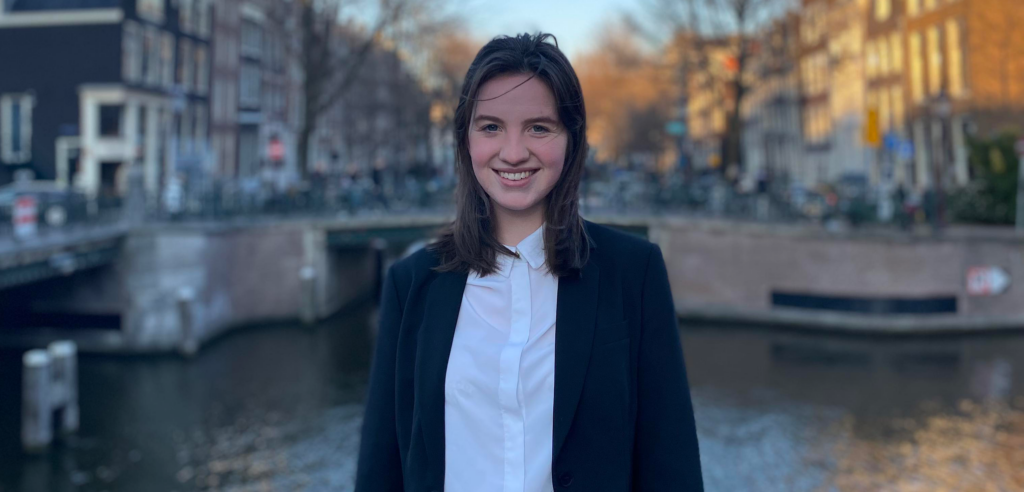
“One of the most surprising new insights was how positive government relations work could be. I had assumed—and sometimes experienced—that government relations were mostly about influencing policy through the private sector. Still, in many ways, government relations is also about helping firms adapt to new policies and be at the forefront of change.”
Read about Saskia’s internship experience
What is your professional background?
I am studying political science at the University of Amsterdam. Before META, I did an internship at the Ministry of Social Affairs. I am very interested in the view of political developments as a shaper of society; thus, how we achieve change through politics. The META internship was a great place to discover this.
What exactly did you do during your internship? Name a project or task you were involved in at META that you enjoyed?
At META, I produced a review of EU Green Deal policies and their impacts. At first, it seemed like a simple overview, but it turned out to be quite challenging and a lot of fun to process so much specific terminology and complex text!
I learned a lot about how the European Union works and got some excellent ideas about sectors to invest.
What are the three biggest lessons you took away from your internship in government relations and PR?
The biggest lesson was professionalism and regularity. Assignments had to be completed quickly but without sacrificing spelling, the visual aspect of the document, etc. One of the most surprising new insights was how positive government relations work could be. I assumed—and sometimes experienced—that government relations were mostly about influencing policy through the private sector. Still, in many ways, GR is also about helping firms adapt to new policies and be at the forefront of change.”
What skills did the internship develop in you the most?
In addition to the regularity mentioned above, I became much more familiar with the terminology used in government agencies, the documents, and the processes to follow. One of the most important skills was synthesizing complex texts into concise ones. The ability to be independent and entrepreneurial, think ahead about projects, and even have the courage to ask for new projects for myself was also important.
Who would you recommend an internship at an agency to?
I would recommend a traineeship at META to everyone! Even if it turns out that it’s not quite what you want to do, the experience itself is so valuable, educational, and fun that there is definitely no regret.
In three words, describe the working environment at META.
The META working environment is fun, open, and challenging.
Ann Hiiemaa: The Customer is the Hero of B2B marketing
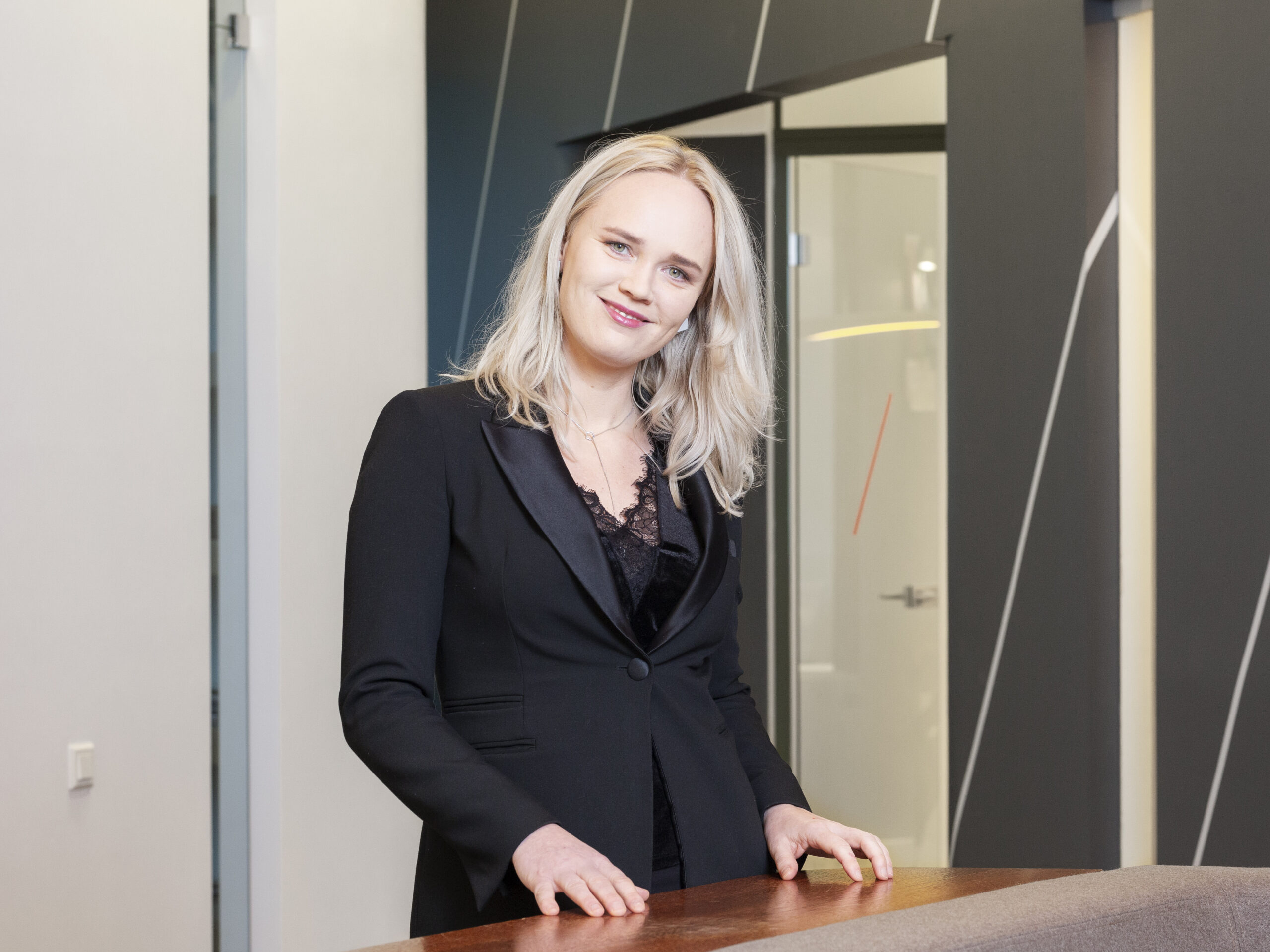
Who is the hero in the customer story? Who is the villain? And who are you?
I love people and their stories. One of my favorite movies is Moneyball, which is about baseball and how Oakland A’s coach Billy Beane found a competitive advantage in a non-existent budget by applying an in-depth statistical analysis for team building.
Based on Michael Lewis’ book Moneyball: The Art of Winning an Unfair Game, their film uses a classic model found in many other films as well. Such as in The Lord of the Rings, my other big favorite – Forrest Gump, and in films like The King’s Speech, Tenet, James Bond films, and in most fairy tales.
In short, the main character, our hero, wants to achieve something that is very difficult. The moment he almost gives up, the unexpected intervention of a helping hand appears (such as a guide, a music teacher, a muse, a business manager, a communication expert), offers a plan, and supports our hero in fulfilling their goal.
Of course, there is always a villain or an enemy in the story. And, of course, the hero ultimately achieves their goal. Why am I telling this story? Because in B2B communication the key is just the same story.
Key question for B2B communication – who is the Hero?
Donald Miller’s book, Building a StoryBrand: Clarify Your Message So Customers Will Listen, sets out a similar framework for selling your product: there is a hero, a villain, a guide, a plan, Calls To Action, failure, and success.
The story begins with a hero. Companies should always ask: who is the hero for them? And it can never be themselves, but rather it is their customer. The customer must always be at the heart of a B2B brand communication strategy. Focusing on a customer’s needs and desires is crucial.
And the hero can never be companies themselves, but rather it is their customer.
The basic questions to consider are: who is our customer, what are their main challenges and needs, how do they communicate with us, what channels do they use to find solutions to their problems, who is the person they listen to and respect? And, above all, how can our product or service help or support them? Your entire offer must be built on customer challenges and concerns.
What or who is the so-called “villain” for your customer? The problem that is frustrating them? It is not uncommon for a customer to be unable to phrase their problem – there is a pain, but where exactly?
The Guide – that is you
Now the guide comes into the picture, the one who helps the hero (the customer) win their challenge. The guide creates a plan to help the hero achieve their goals. At Meta Advisory, we always build our communication plans based on the customer’s business goals, as the role of the communication is to support business growth.
The guide offers valuable content and tips that help the hero reach a solution. Content creation is based on the journey the customer is facing – from looking for solutions to small victories. Therefore, the most important thing is to map the hero’s journey as accurately as possible.
For B2B companies, the minimum activities are a visually appealing website, strong copy, and a clear message built on the hero’s challenge. The next stage includes, customer stories(testimonials), exceptionally strong management analysis, webinars, field research, podcasting, and white papers – conceptual reports that reveal a specific problem area and the challenge as a whole: why it has been difficult to solve so far, what solutions have been attempted, summaries of specific literature, a new philosophical approach, etc. Once you have your message, you need to be where your customer is and speak to them in a way in which they get your message.
There is a tremendous amount of information available for B2B customers online. The competition for the attention of buyers is tough. Brent Adamson of research firm Gartner wrote, in the first issue of the 2022 Harvard Business Review, that B2B customers spend only 17% of their buying process talking to potential suppliers. All the preliminary work is done internally, by comparing and analyzing easily accessible information.
This 17% portion of time that salespeople have direct contact with the customer, should be used for getting a very simple message to the customer, so that the decision matrix they’ve already created, will generate the result that you are the solution for them.
Brent Adamson’s analysis coincides with what we, marketers, have learned about telling stories and being a guide to the customer. This 17% portion of time that salespeople have direct contact with the customer, should be used for getting a very simple message to the customer, so that the decision matrix they’ve already created, will generate the result that you are the solution for them.
It is important to make it crystal clear to the hero, what your company offers and how it will help them in solving their problems.
Personal branding
In order to be heard, a guide must first establish themselves as an authoritative source, gain an expert image and create common experiences of success, which are the basis for building further trust. People don’t always buy the products or services of the best company. They buy the products and services they understand. And today, they are more willing to buy these products and services from businesses that are well-known in their field and available at the critical moments the customer needs advice or help.
People want to work with otehr people, not companies.
Here, too, communication comes into play. There is a new era in B2B marketing – although most sales contacts are now remote and through electronic channels, paradoxically, so much more human touch is needed in communication. People want to work with other people, not companies. The challenge for the company is to find more people and characters from its teams, including sales teams, to introduce to their customer segments through the company’s own channels and earned media, and to build their marketing communication on real people. Of course, it also supports the pillars of the company’s reputation, and works together with employer branding, etc. Field experts and prominent people help build a strong brand, which in turn helps generate more sales.
Both general media and a company’s own channels must be used here. Today, there are quite a few of those who systematically and consciously build their personal brands on LinkedIn and general media. It also supports one of the most acute challenges for B2B companies today – recruitment.
Miller points out two aspects in his book – success and failure. In other words, what will the life of a hero be if they don’t buy from you, and what will their story be if they do. And we all know that their life would definitely be much more enjoyable if they bought from you.
META Advisory Wins Grand Prix at Region’s Largest Communications Awards
The branding campaign “Skip 2020. Step into the future.” led by Work in Estonia and Meta Advisory has been announced as the winner of the category for the best employer branding campaign at Eventiada IPRA GWA. This year, a record number of participants from a total of 15 countries took part in the largest communication competition in the region.
The aim of the 11th Eventiada IPRA GWA competition was to celebrate the best communication campaigns of the year. Meta Advisory and Work in Estonia’s “Skip 2020. Step into the future.” was nominated in two major categories — first place was received for creating the Best HR Campaign in Turbulent Times. The campaign also won the all-new award category for activities contributing to sustainable development.
Work in Estonia’s “Skip 2020. Step into the future.” focused on maintaining Estonia’s high-level reputation as a destination country for foreign IT talent. “Employer branding is of growing importance for every company and organisation. The fight for talent has been ongoing for a few years now, but is only beginning to reach its peak. The Skip 2020 success story shows that integrated campaigns, where the digital is not separated from the traditional communications, but are rather designed to support one another, are the campaigns that have a huge impact,” commented Ann Hiiemaa, META’s New Business Development Manager and a member of the Skip2020 project team, on the key skill of a modern communications agency being the ability to combine media communication, marketing, advertising and social media.
During the Skip2020 campaign, 222 new job offers were added to the Work in Estonia page, 17,242 people visited the campaign page, and 124 “Possible only in 2020” stories from people in the IT sector from 35 countries were written on the page. The campaign video was viewed more than 343,000 times in two weeks.
The META Skip2020 team consisted of Maarja Karmin, Laura Põldma, Anni Türkson and Ann Hiiemaa. The project manager of Work in Estonia was Kristi Veskus, the digital partner of the campaign was the agency Age Creative.a
The Eventiada IPRA GWA competition has been organized since 2011 by the Orta Communications Group and the International Public Relations Association. This year, the jury included 35 communication experts from 17 different countries.
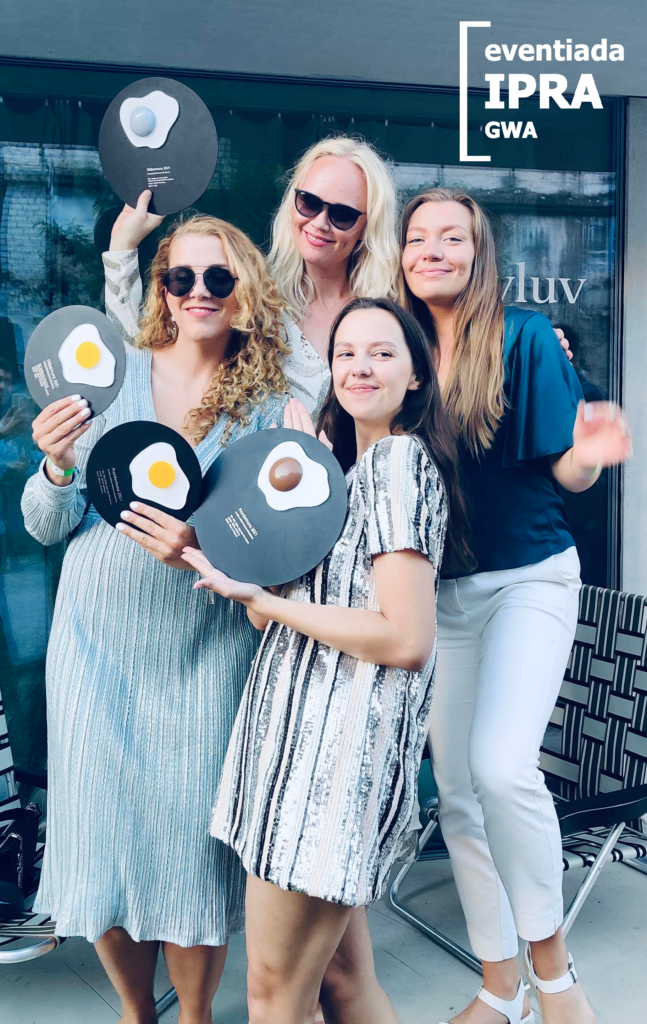
5 tips for influencers for an effective cooperation: PR agency’s view

The title influencer can be attributed to virtually anyone active on social media. Social media gives a voice to everyone – anyone can create content.
Having worked as a PR consultant with world-renowned brands and many content creators, I have made a number of observations over the years that could be useful both for a content creator and their client. What are the best practices for influencers, and how can routines be put in place to help ensure that a client returns?
1. Stay loyal
One of the biggest mistakes an influencer can make is to rush into a new collaboration with their client’s competitor immediately after the end of the cooperation with a client. This does not leave a good impression on cooperation partners or agencies. As an influencer you should maintain your authenticity and stay loyal to those brands with whom you have had a good cooperation, and whose products you use outside of a work relationship.
This way, you secure your professional image and show authenticity to your followers. This will increase the chances that a client will want to work with you again – you never know, maybe they will offer you a proposal for a long-term cooperation or an opportunity to develop a completely new product together.
2. Don’t become a Top Shop ad
This and the first point complement each other. Brands like faces who talk about products with their own character and humour, and are not already “overused”; meaning those influencers who are selective, and don’t take each and every offer.
Usually the influencers who are truest to their personality and interests, tend to receive the most offers to cooperate. Thus, it is up to the influencer to decide whether they will become just another advertisement somewhere on the main street or retain the specific content of their channel and match the brands with it, not vice versa.
3. Deadlines, deadlines, deadlines – it’s crucial
Yes, it is really important to meet deadlines. Campaigns are planned for specific periods, and in most cases, working with an influencer is only one part of an entire larger campaign. This means an attitude of “it doesn’t matter when I post the content” is definitely not the way an ideal partner would think.
It is worth noting that the need to ask and prompt about deadlines becomes incredibly inconvenient for project managers pretty quickly. It is unlikely that a person who disrespect agreements will be involved in a campaign next time.
4. Don’t black out any potential customer
So many influencers have publicly stated that people should take their work more seriously – content creation takes a lot of time and preparation. This is 100% true.
However, it is also important that an influencer maintains a serious image. Hence one of the most basic tenets is: public defamation of clients, both potential and existing, does not create any credibility and is uninviting. It is worth considering that Estonia’s small size means that stories about experiences, both good and bad, move quickly and such experiences do not stay unnoticed by others.
Of course, this does not mean that feedback about a cooperation should not be given. On the contrary: if you do not like something or have ideas about how to make something better in the future, you should tell your client. This is exactly how agencies work with their clients.
5. Share statistics and feedback
The brands themselves also want feedback. If something is wrong with their product or needs further development, such direct feedback from the consumer is extremely valuable.
Seeing an influencer’s statistics is also very useful and informative for a brand. Although most companies ask for that themselves at the end of a cooperation – or sometimes before beginning – a cooperative and proactive approach by an influencer is especially pleasing. Sharing important information and data on your own initiative is a sign of professionalism and openness to a client.
A new trend – the role of communication manager is fully entrusted to an agency

More and more international and Estonian companies are moving in a direction where the entire work of a communication department is outsourced to an agency. Is this decision justified, and in that case, what is the key to smooth cooperation?
Although, at the beginning of the COVID-19 crisis, it was thought that many companies would manage communication with the help of in-house staff, the reality has turned out the opposite. Even before the crisis, the trend of outsourcing the entire communication management service had begun to grow. In particular, from an agency that provides a full service – strategic communication, daily media communication, and social media as well as internal communication.
In order to make such a cooperation smooth, one person should still be responsible for marketing and communication in-house. Whether it is a marketing or communication manager, the two areas are so intertwined and should, ideally, support each other, it doesn’t matter how the responsible person is titled. However, it is common that the person responsible for communication in the company is the marketing or brand manager.
Agency vs communication or marketing manager
Outsourcing the entire communication service is especially common in international companies, which very often connect the Estonian, Latvian and Lithuanian markets and outsource all project management and daily communication from one agency.
For years, Coca-Cola and McDonalds, for example, have been doing the same, outsourcing all communication management. According to Nele Normak, Coca-Cola’s Head of Public Relations in the Baltics, this is both cost-effective and significantly more convenient for the person in charge. “A few years ago we made the strategic decision to consolidate marketing, PR, and government communication under one single agency.
Different brands need a diverse range of communication to reach their target groups and get the best results. The use of an agency adds freshness, and offers innovative approaches and diverse perspectives,” explained Normak.
A similar example is Citycon, where the marketing team consists of marketing and communication manager Helina Leif, and the coordinator of the shopping centers. The latter mainly dealing with internal communication. Their communication service is outsourced entirely to META Advisory.
“Other Nordic countries with a number of Citycon shopping centers have their own communication managers. Similarly to Denmark, Citycon has only two centers in Estonia (very few compared to Norway, where there are 24 centers – H.L.), whose communication needs and volumes do not require the hiring of a separate specialist. However, I feel that since, in Estonia, my area of responsibility is both marketing and communication, the use of a PR agency is absolutely essential during the high season. Firstly, it is cost-effective; and secondly, I appreciate the agency’s support, particularly in crisis communication issues and media relations. When publishing data or news, it is often good to have an impartial partner who has no connection to Citycon. That helps to see the bigger picture and to provide better comments, which also have a greater impact on the customer, who does not know the background of the center’s decisions,” Leif explained.
Which is more cost-efficient?
Many are afraid to hire an agency fearing it would be very expensive. In practice, however, hiring an agency is sometimes more cost-efficient than hiring one high-level communication professional. Especially because obtaining services from the agency provides access to specialists of several different areas, who will help to grow both the company’s reputation and the sale of your product or service. Today, a modern communication agency offers services to help build product and service brands, to plan marketing based on customer segments, and to build a company’s reputation and develop it from month to month, as well as managing the company’s relationship with the public, media and local community.
Especially in times of crisis the agency can be of great help, as there are experts who have managed the crisis communication of several companies and gained valuable experience. Thanks to this, it is possible for a company to feel more secure every day.
The 2020 labor market survey done by CVKeskus.ee, the largest employment portal in Estonia, and the Salary Information Agency, revealed that the median gross salary in Estonia for a marketing and communication specialist is 1,400 euros and 1,850 euros for a top specialist. At the same time, it is true that an experienced communication manager is no longer attracted to such a fee. However, it is possible to get a monthly contract from the agency for the same amount of money, which can cover the basic needs of a smaller company.
Ask META for an offer today and write to ann.hiiemaa@metaadvisory.ee
Why a podcast for a mall? The first step of Trend Makers
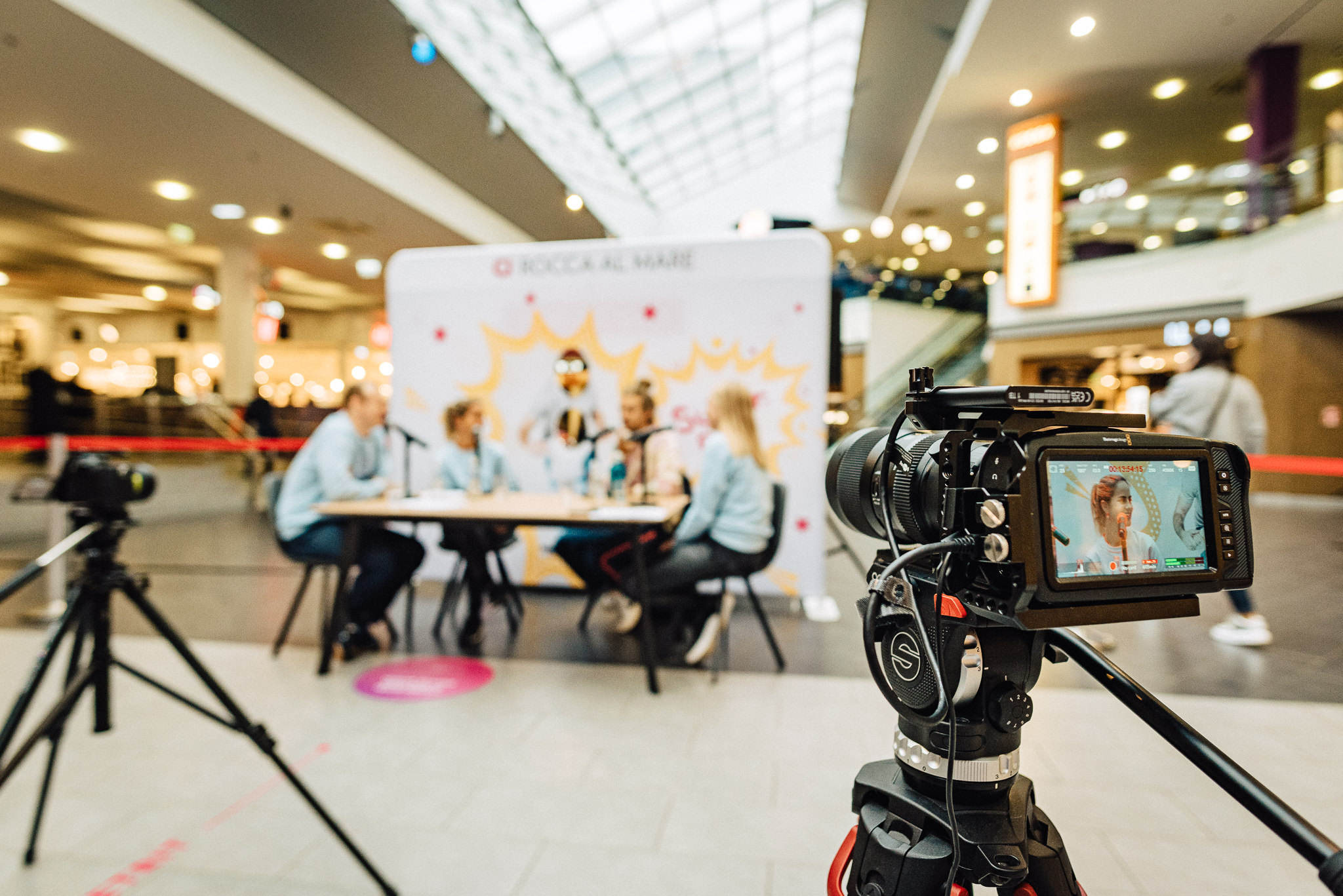
In summer 2020, we started recording the podcast Trend Makers in cooperation with the Kristiine and Rocca al Mare Centers, and the Kõrvauss studio. In Estonia, Kristiine and Rocca al Mare were the first shopping centers to create such an additional channel for themselves.
The podcast is not just a new advertising space for the centers, but their very own program.
The presenters talk to amazing and inspiring people, who may be familiar to the audience already. Trend Makers wants to offer interesting content and, through this, inspire young people. Involving the tenants of the centers helps add an expert view to the topics. And for the tenants, the extra advertising opportunity is a positive side effect.
The tenants of the Rocca al Mare and Kristiine centers value the podcast greatly as an additional output. After recording the first episodes, we also sent them to tenants to listen to, to give them an idea of what the podcast is all about. We also gave them the opportunity to suggest topics for the next episodes. We found that both centers have quite a number of tenants with many exciting topics to cover.
IDEA
The idea for the podcast, Trend Makers, came from the need to reach young people, who are no longer following traditional media. The most popular social media platforms – Instagram, and Facebook, as well as Snapchat and TikTok – are increasingly competitive.
Podcasts allows you to connect the listener to the content for a longer period of time than, for example, short videos or other visual graphics. As already mentioned, it is also a completely new output for tenants of the centers, as the episodes involve their representatives, who can talk about their activities. The best picks from conversations with the guests have also been published in other media – both on the Postimees and Delfi web portals.
STEP ONE
Marketers know that building any new environment is a huge task, so it is always wise to ask yourself, whether the future revenue outweighs the cost, and whether there will be enough people to manage the new format later on.
Making a Podcast is undoubtedly a challenge, but it’s worth it. We have made it very clear to ourselves that building a new environment will take time. It’s a consistent job. Popularity and crowds of listeners don’t come overnight. But the beginning has been promising. With each new episode we see that the number of unique listeners grows. Far away listeners are even located in North and South America, for example.
The podcast, which started in June, already has 10 episodes! Kite surfer and coach Kristiin Oja, actorKristjan Lüüs, make-up artist Gerda Miller, musicians Sander Mölder, Eik Erik Sikk and Maian Lomp, as well as Joel Juht have been among the guests. There is also a live episode with singer Daniel Levi Viinalass.
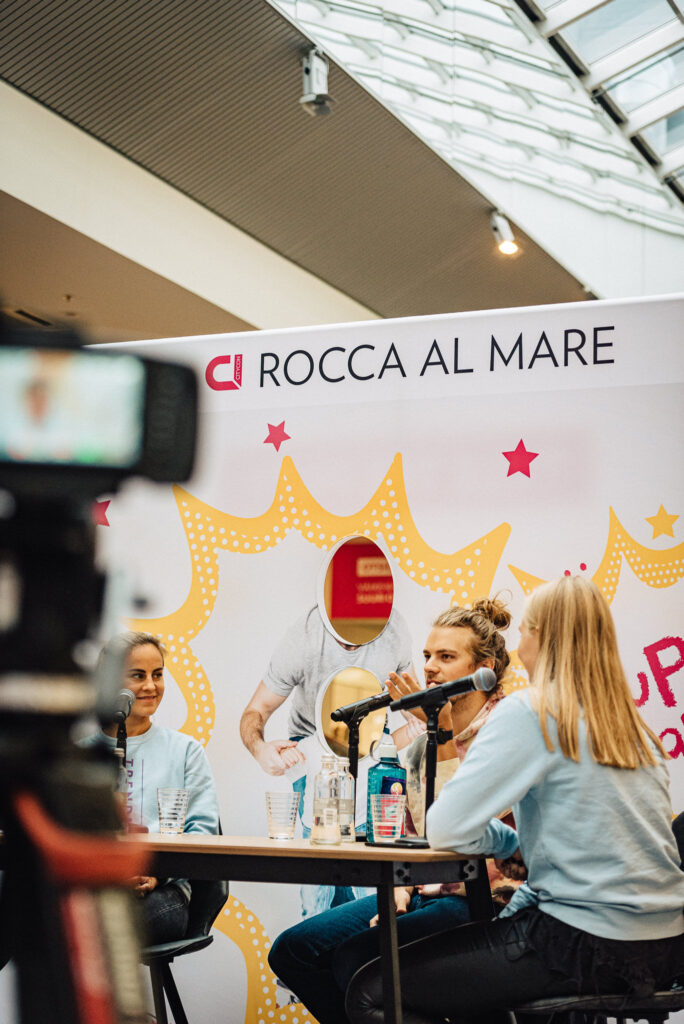
“We did a live podcast in front of visitors in the Rocca al Mare Center and linked it to the Father’s Day campaign ‘Super-Paps’. We invited a well-known father figure as a guest to the show, who was also a campaign face in social media. We also videotaped the episode and tested the podcast in video format, ”describes Helina Leif, Marketing and Communications Manager of Citycon’s Estonian centers. “Admittedly, it worked surprisingly well: so far, the video has been watched more than the corresponding episode has been listened to on Spotify. It can’t be hidden, the secret to the video’s success may be that Daniel is such a bright and charismatic personality. The success of the first experiment has given us the courage to do live podcasts in other campaigns as well.”
CHALLENGES AND ADVANTAGES
One of the biggest challenges in making a podcast is finding a suitable time. Since we have three presenters, two guests, and recording takes place in the Kõrvauss studio, finding a time that suites everyone sometimes takes several weeks. For the sake of simplification, we have now taken the path that all three presenters do not have to be present and, if possible, we get two guests at the same time and do a slightly longer episode.
The advantage of a podcast is that it allows people to consume information while they are doing something else – like exercising, driving, walking, or cleaning. Thus, it seemed only right to introduce audio media in addition to all visual channels.
Trend Makers podcasts can be listened to on Spotify, Apple Podcast, Google Podcast, and other popular media. The presenters of the Trend Makers are META Advisory consultants Jonatan Karjus, Helin Naska and the head of marketing and communication of Citycon’s Estonian centers, Helina Leif.
The Podcast can be listened to HERE.
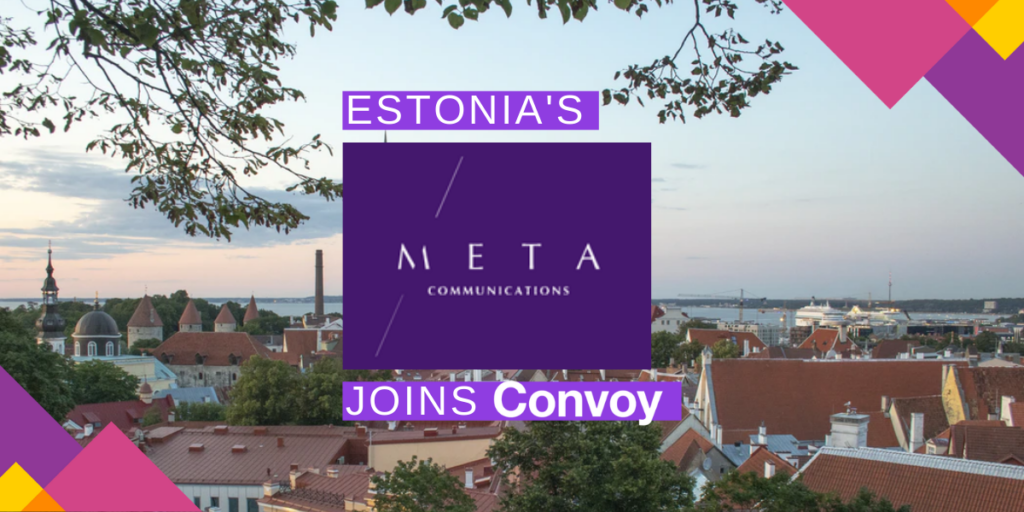
1 min read

NB! Microsoft on loobunud Internet Exploreri arendamisest ning sellele uuenduste tegemisest ja ei soovita antud internetibrauserit turvanõrkuste tõttu kasutada. Internet Explorer ei toeta enam uusi võrgustandardeid ning antud veebilahendus ei tööta siinses brauseris korrektselt.
Palun lae alla mõni moodne veebilehitseja:
The website uses cookies. Cookies are required for your convenience and web statistics. By continuing to use the website, you agree to the terms of the privacy of cookies! You can see the terms of the privacy policy in here.


